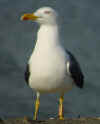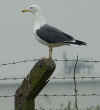 Lesser Black-backed Gull- Kleine Mantelmeeuw (graellsii & intermedius)
Lesser Black-backed Gull- Kleine Mantelmeeuw (graellsii & intermedius)
(last update:
lbbg 1cy May
lbbg 1cy June
lbbg 1cy July
lbbg 1cy August
lbbg 1cy September
lbbg 1cy October
lbbg 1cy Nov - Dec
lbbg 2cy Jan-April
lbbg 2cy August
lbbg 2cy September
lbbg 2cy October
lbbg 2cy Nov - Dec
lbbg 3cy Jan-April
lbbg 3cy May
lbbg 3cy June
lbbg 3cy July
lbbg 3cy August
lbbg 3cy September
lbbg 3cy October
lbbg 3cy Nov - Dec
lbbg sub-ad Jan-April
lbbg sub-ad May
lbbg sub-ad June
lbbg sub-ad July
lbbg sub-ad Aug
lbbg sub-ad Sept
lbbg sub-ad Oct
lbbg sub-ad Nov - Dec
lbbg ad Jan-April
lbbg adult May
lbbg adult June
lbbg adult July
lbbg ad August
lbbg ad September
lbbg ad October
lbbg ad Nov - Dec
adult: January - AprilLBBG in the Netherlands: January A small proportion of the NW European LBBG spend winter along the coast of the Netherlands. In the south, along the coast at Westkapelle (see map), small groups can be found well into January. The complete moult has been finished by
January, as the images in the first box show. Both
individuals in picture 01 & 02 are believed to be adults, originating
from intermedius colonies. Quite a proportion of the present LBBG at Westkapelle show this
structural characteristics: neckless, short fine bill, short tibia
and therefore appear short-legged and long-winged -as in the second
picture (P6 reaching further than the tail-tip). Often, intermedius may be
characterized as a compact birds. In both pictures, the yellow legs and bill
combined with a large mirror on P10 suggest full adultness.
The wing-tip pattern in both adults is totally different: just small white tips and a indistinct white mirror on P10 in the first picture. The second bird has an extensive white tips, on P10 merging with the white mirror and a large mirror on P9. The tip and mirror on P10 are hardly separated, just a small black sub-terminal band divides the two. Birds present in the colony, and probably willing to mate, may still show an all-dark P10, lacking a mirror. The other extreme is a large mirror on P10, merged with a tip and a considerable mirror on P9, covering both the inner and outer-web. In general, large mirrors on P9 and P10 are associated with adult males. LBBG returning to the
colonies in the Netherlands
At the Maasvlakte, most major position are taken again in the colony by another
type of LBBG: Dutch intergrades. The are slightly darker than typical graellsii
from Britain, but not as dark as the average intermedius from
Scandinavia. They carry the genetic heritage of both taxa. The exchange of
gene pools hasn't stopped yet. Still, in the colonies at Maasvlakte we see
foreign ringed birds, breeding together with local Dutch birds. Not
surprising, these foreign birds often seem to be females. Primary Moult Scores in adult LBBG: Year 2003 we did some preliminary research on primary moult scores in adult LBBG. In total, we scored about 1400 birds from early April to mid October. This research will be used to do some more fundamental research in tear 2003-2004. First results for April are quite simple: we scored 49 birds on April 05 and we scored 45 birds on April 19. All these birds had P1 still present, hence PMS = 0. Nevertheless we did see several adult LBBG in the colony, which had P1 shed by April 19. Some notes: the scorse on April 05 2003 were done at Naaktstrand, on preening, bathing and arriving birds, through 20x-60x telescopes. Active moult would be noticed, but to detect arrested moult in such circumstances is pretty difficult. Next year, we try to start our surveys with catching birds and examine the exact primary stage in the inner primaries by taking photographs. Tables & Graph
Table above, data for the Netherlands (2000-2010), results for April (aggregated week): number of remaining old primaries in adults.
Above: Scatter Plot for PMS in adult Lesser Black-backed Gulls. Number of remaining old primaries throughout the year (arrested moult excluded). Sample size is 6.171 birds. Above: Scatter Plot for PMS in adult Lesser Black-backed Gulls. Number of remaining old primaries for April (arrested moult excluded). Sample size for this graph is 879 ringed birds.
Table above, data for the Netherlands (2000-2010), results for April (aggregated week): number of new, fully grown primaries in adults.
Above: Scatter Plot for PMS in adult Lesser Black-backed Gulls. Longest new primary is classified "fully grown". Sample size is 2.969 birds. Birds scored on NEW primaries (arrested moult excluded). The last scoring days were in November, with a larger sample (133 adults) on 04 November 2010. From that date we have the last birds with retaining old primaries (13 birds with 1, 2 or even 3 old primaries; 120 birds with no old primaries left). From other days in November, only 10 birds were scored (all ringed adults). They all had no old primaries left. The first tine a new primary (P1) was visible, was on 08 May 2006. Prior to this date, birds were scored missing inner primaries, but the very tip was still not visible (and therefore not scored). As soon as the tip of P1 was visible, this was automatically scored "fully grown" For the other primaries to be scored fully grown, they had to exceed the previous primary in length (so P2 fully grown, only from when it is longer than P1).
LINEAR REGRESSION Onset of primary moult can best be illustrated by a sinusoid for the first few weeks and last weeks, but there appears to be linear dependency over much of the central moult period. The earliest date for birds with missing primaries is 30 April 2006, which is not the earliest day in our complete sample. We scored 98 Lesser Black-backed Gulls prior to that date, some already in February. As can be expected, none of these was in primary moult, and this group was excluded in our further analysis as it will only result in a misfit for the onset of moult, using linear regression statistics. LINEAR REGRESSION FOR OLD REMAINING PRIMARIES Complete sample: Linear regression (n = 6171, R2= 0.820, sign: P<0,000) Ringed adults: Linear regression (n = 2069, R2= 0.800, sign: P<0,000) Unringed adult: Linear regression (n = 4102, R2= 0.779, sign: P<0,000) LINEAR REGRESSION FOR NEW FULLY GROWN PRIMARIES Complete sample: Linear regression (n = 2969, R2= 0.930, sign: P<0,000) Ringed adults: Linear regression (n = 1209, R2= 0.888, sign: P<0,000) Unringed adult: Linear regression (n = 1760, R2= 0.833, sign: P<0,000)
LBBG in the Netherlands: colour ring projects For over 10 years we have colour ring projects in the Netherlands. By far the largest project involves LBBG breeding in two colonies near the port of Rotterdam: one large colony at Maasvlakte and the second at Dintelhaven (eastern Maasvlakte). Although the other colony is well visible from either side, only separated by water, birds appear to be very faithful and try to nest in the colony where they were raised. Only limited number of ringed birds can be found in the 'wrong' colony. First LBBG were ringed with white rings,
first with letter digit digit, later with letter letter digit.
At the colony 'Maasvlakte', orange rings were used. First years
(1991-1992) codes were letter digit digit, later letter letter
digit. From then on, all ring codes started with E (Europoort
Rotterdam), followed by three letters or digits. At
the port of IJmuiden, near Amsterdam, Fred Cottaar started another LBBG
colour ring project on roof top breeding birds. In this project, red and
white rings were used with three different codes: a single letter or
single digit or bars. Another recently started colour-ring project in the Netherlands can be found in the industrial area of Moerdijk (inland breeding LBBG). This project was started by Roland-Jan Buijs and he used mint green rings with two black letters. Because this population breeds in tall grass, Roland-Jan used tibia rings. Subsequently, an interesting English project was started by David Sowter in 1997.
Use of colour rings to study inter-colony movement and feeding of Lesser Black Backed Gulls at three sites in NW England.by: David SowterPurpose:Despite regular culling and disturbance the Lesser Black Backed Gull colony at Tarnbrook Fell has continued to thrive. This study is intended to determine the extent to which movement of Lesser Black Backed Gulls between the three sites, which are inter-visible on a good day, may play a part in the breeding success of the Tarnbrook colony. It is also hoped to establish whether there are common feeding, roosting and migration sites and what part they play in the movement of gulls between colonies for breeding. Method:In the pilot year, 1997, 200 juveniles were ringed at each of the three sites using green darvic with a single white letter code: R, T, and W. For each of the five years 1998- 2001, 2500 birds will be ringed at each of the three sites with black darvic rings with yellow site letter plus a three letter/number combination (left leg) so individual birds can be identified in the field by year and site. Individual BTO metal rings (right leg) will also identify birds. To develop and analyze data based on personal observation and records achieved through co-operation with local bird clubs and through the BTO network and the large gull coordinator, Peter Rock. Sites: Ribble Estuary Nature Reserve: ( 53 42’ N : 2 55’ W - SD 3924) in co-operation with Mike Gee/Dick Lambert, English Nature Wardens and SW Lancs Ringing Group. Dick and the SW Lancs Ringing Group have carried out some ringing for most years since the mid-1980’s. The site is within salt marsh near the mouth of the River Ribble and is subject to periodic flooding by high tides, which decimates the breeding success in some years. Tarnbrook Fell, Forest of Bowland: (54.01N 2.35W - SD 6258) with permission and sponsorship from Grosvenor Estates, Abbeystead and Mr R Banks the Abbeystead Estate manager; Mr R Challenor for Mallowdale estates and NW Water for Brennand estates. Dr John Coulson and associates have been undertaking studies and control measures at this site since at least the mid-1980’s. The colony, which is within heather, grass and peat-hag moorland at a height of 450-530 metres, has continued to maintain high numbers or expand despite culling and managed disturbance over a number of years. South Walney Nature Reserve: (54.03N 3.12W - SD 2162) in co-operation with Rob Shaw and Nick Littlewood, the warden of the reserve. There has been ringing of gulls on this dune site at the south end of Walney Island since at least the early 1960’s. Colour Ring combinations: 1997: GREEN showing
WHITE single letter for site. Please send details of sightings with date, location, details of gulls and activity to: David Sowter: 5 The Grove Penwortham Preston PR1 0UU. 01772 749220. davidsowter@freenet.co.uk All responses will be acknowledged. Especially these kind of project, with many LBBG colour ringed, may give full insight in variation of LBBG plumages from different locations. See also the Distribution Section. |
 LBBG C4 Dordrecht, the Netherlands, March 09 2009. LBBG C4 Dordrecht, the Netherlands, March 09 2009. |
||||||||||||||||||||||||||||||||||||||||||||||||||||||||||||||||||||||||||||||||||||||||||||||||||||||||||||||||||||||||||||||||||||||||||||||||||||||||||||||||||||||||||||||||||||||||||||||||||||||||||||||||||||||||||||||||||||||||||||||||||||||||||||||||||||||||||||||||||||||||||||||||||||||||||||||||||||||||||||||||||||||||||||||||||||||||||||||||||||||||||||||||||||||||||||||||||||||||||||||||||||||||||||||||||||||||||||||||||||||||||||
 LBBG AH1
11cy, Missouriweg - Maasvlakte, the Netherlands, April 29 2002 (51.59N,04.02E). LBBG AH1
11cy, Missouriweg - Maasvlakte, the Netherlands, April 29 2002 (51.59N,04.02E). |
|||||||||||||||||||||||||||||||||||||||||||||||||||||||||||||||||||||||||||||||||||||||||||||||||||||||||||||||||||||||||||||||||||||||||||||||||||||||||||||||||||||||||||||||||||||||||||||||||||||||||||||||||||||||||||||||||||||||||||||||||||||||||||||||||||||||||||||||||||||||||||||||||||||||||||||||||||||||||||||||||||||||||||||||||||||||||||||||||||||||||||||||||||||||||||||||||||||||||||||||||||||||||||||||||||||||||||||||||||||||||||||
 LBBG AM0
10cy, April 16 2001 & April 29 2002, Missouriweg Maasvlakte, the Netherlands (51.59N,04.02E). Ringed June 28 1992 as pullus at the nest. LBBG AM0
10cy, April 16 2001 & April 29 2002, Missouriweg Maasvlakte, the Netherlands (51.59N,04.02E). Ringed June 28 1992 as pullus at the nest. |
|||||||||||||||||||||||||||||||||||||||||||||||||||||||||||||||||||||||||||||||||||||||||||||||||||||||||||||||||||||||||||||||||||||||||||||||||||||||||||||||||||||||||||||||||||||||||||||||||||||||||||||||||||||||||||||||||||||||||||||||||||||||||||||||||||||||||||||||||||||||||||||||||||||||||||||||||||||||||||||||||||||||||||||||||||||||||||||||||||||||||||||||||||||||||||||||||||||||||||||||||||||||||||||||||||||||||||||||||||||||||||||
 LBBG CH9
11cy, March 18 2002, Missouriweg, Maasvlakte, the Netherlands (51.59N,04.02E). An adult male ringed, left orange CH9, ringed as a pullus in July 1992. LBBG CH9
11cy, March 18 2002, Missouriweg, Maasvlakte, the Netherlands (51.59N,04.02E). An adult male ringed, left orange CH9, ringed as a pullus in July 1992. |
|||||||||||||||||||||||||||||||||||||||||||||||||||||||||||||||||||||||||||||||||||||||||||||||||||||||||||||||||||||||||||||||||||||||||||||||||||||||||||||||||||||||||||||||||||||||||||||||||||||||||||||||||||||||||||||||||||||||||||||||||||||||||||||||||||||||||||||||||||||||||||||||||||||||||||||||||||||||||||||||||||||||||||||||||||||||||||||||||||||||||||||||||||||||||||||||||||||||||||||||||||||||||||||||||||||||||||||||||||||||||||||
|
|
|||||||||||||||||||||||||||||||||||||||||||||||||||||||||||||||||||||||||||||||||||||||||||||||||||||||||||||||||||||||||||||||||||||||||||||||||||||||||||||||||||||||||||||||||||||||||||||||||||||||||||||||||||||||||||||||||||||||||||||||||||||||||||||||||||||||||||||||||||||||||||||||||||||||||||||||||||||||||||||||||||||||||||||||||||||||||||||||||||||||||||||||||||||||||||||||||||||||||||||||||||||||||||||||||||||||||||||||||||||||||||||
 LBBG EM7
10cy, March 18 2002, Missouriweg, Maasvlakte, the Netherlands (51.59N,04.02E). An adult male ringed, left orange EM7. LBBG EM7
10cy, March 18 2002, Missouriweg, Maasvlakte, the Netherlands (51.59N,04.02E). An adult male ringed, left orange EM7. |
|||||||||||||||||||||||||||||||||||||||||||||||||||||||||||||||||||||||||||||||||||||||||||||||||||||||||||||||||||||||||||||||||||||||||||||||||||||||||||||||||||||||||||||||||||||||||||||||||||||||||||||||||||||||||||||||||||||||||||||||||||||||||||||||||||||||||||||||||||||||||||||||||||||||||||||||||||||||||||||||||||||||||||||||||||||||||||||||||||||||||||||||||||||||||||||||||||||||||||||||||||||||||||||||||||||||||||||||||||||||||||||
 LBBG JX5 10cy, April 22 2002, Missouriweg - ECT, Maasvlakte, the Netherlands (51.59N,04.02E). An adult ringed, left orange JX5. The orange colour turned grey. Ringed July 04 1993. LBBG JX5 10cy, April 22 2002, Missouriweg - ECT, Maasvlakte, the Netherlands (51.59N,04.02E). An adult ringed, left orange JX5. The orange colour turned grey. Ringed July 04 1993. |
|||||||||||||||||||||||||||||||||||||||||||||||||||||||||||||||||||||||||||||||||||||||||||||||||||||||||||||||||||||||||||||||||||||||||||||||||||||||||||||||||||||||||||||||||||||||||||||||||||||||||||||||||||||||||||||||||||||||||||||||||||||||||||||||||||||||||||||||||||||||||||||||||||||||||||||||||||||||||||||||||||||||||||||||||||||||||||||||||||||||||||||||||||||||||||||||||||||||||||||||||||||||||||||||||||||||||||||||||||||||||||||
 LBBG KR5 11cy, April 06 2003, Missouriweg, Maasvlakte, the Netherlands (51.59N,04.02E). The orange colour turned grey. Ringed July 07 1993. LBBG KR5 11cy, April 06 2003, Missouriweg, Maasvlakte, the Netherlands (51.59N,04.02E). The orange colour turned grey. Ringed July 07 1993. |
|||||||||||||||||||||||||||||||||||||||||||||||||||||||||||||||||||||||||||||||||||||||||||||||||||||||||||||||||||||||||||||||||||||||||||||||||||||||||||||||||||||||||||||||||||||||||||||||||||||||||||||||||||||||||||||||||||||||||||||||||||||||||||||||||||||||||||||||||||||||||||||||||||||||||||||||||||||||||||||||||||||||||||||||||||||||||||||||||||||||||||||||||||||||||||||||||||||||||||||||||||||||||||||||||||||||||||||||||||||||||||||
 LBBG UA8
7cy, Maasvlakte, the Netherlands (51.59N,04.02E), April 05 & 14 1999. Photo by Pim Wolf. LBBG UA8
7cy, Maasvlakte, the Netherlands (51.59N,04.02E), April 05 & 14 1999. Photo by Pim Wolf. |
|||||||||||||||||||||||||||||||||||||||||||||||||||||||||||||||||||||||||||||||||||||||||||||||||||||||||||||||||||||||||||||||||||||||||||||||||||||||||||||||||||||||||||||||||||||||||||||||||||||||||||||||||||||||||||||||||||||||||||||||||||||||||||||||||||||||||||||||||||||||||||||||||||||||||||||||||||||||||||||||||||||||||||||||||||||||||||||||||||||||||||||||||||||||||||||||||||||||||||||||||||||||||||||||||||||||||||||||||||||||||||||
|
|
|||||||||||||||||||||||||||||||||||||||||||||||||||||||||||||||||||||||||||||||||||||||||||||||||||||||||||||||||||||||||||||||||||||||||||||||||||||||||||||||||||||||||||||||||||||||||||||||||||||||||||||||||||||||||||||||||||||||||||||||||||||||||||||||||||||||||||||||||||||||||||||||||||||||||||||||||||||||||||||||||||||||||||||||||||||||||||||||||||||||||||||||||||||||||||||||||||||||||||||||||||||||||||||||||||||||||||||||||||||||||||||
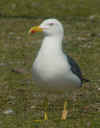 LBBG E017 8cy, April 22 2002, Missouriweg - ECT, Maasvlakte, the Netherlands (51.59N,04.02E). An adult ringed, left orange E017 in July 1995 at Maasvlakte. LBBG E017 8cy, April 22 2002, Missouriweg - ECT, Maasvlakte, the Netherlands (51.59N,04.02E). An adult ringed, left orange E017 in July 1995 at Maasvlakte. |
|||||||||||||||||||||||||||||||||||||||||||||||||||||||||||||||||||||||||||||||||||||||||||||||||||||||||||||||||||||||||||||||||||||||||||||||||||||||||||||||||||||||||||||||||||||||||||||||||||||||||||||||||||||||||||||||||||||||||||||||||||||||||||||||||||||||||||||||||||||||||||||||||||||||||||||||||||||||||||||||||||||||||||||||||||||||||||||||||||||||||||||||||||||||||||||||||||||||||||||||||||||||||||||||||||||||||||||||||||||||||||||
 LBBG E053 9cy, April 06 2003, Missouriweg, Maasvlakte, the Netherlands (51.59N,04.02E). LBBG E053 9cy, April 06 2003, Missouriweg, Maasvlakte, the Netherlands (51.59N,04.02E). |
|||||||||||||||||||||||||||||||||||||||||||||||||||||||||||||||||||||||||||||||||||||||||||||||||||||||||||||||||||||||||||||||||||||||||||||||||||||||||||||||||||||||||||||||||||||||||||||||||||||||||||||||||||||||||||||||||||||||||||||||||||||||||||||||||||||||||||||||||||||||||||||||||||||||||||||||||||||||||||||||||||||||||||||||||||||||||||||||||||||||||||||||||||||||||||||||||||||||||||||||||||||||||||||||||||||||||||||||||||||||||||||
 LBBG E264, April 22 2002 & April 05 2003, Missouriweg - ECT, Maasvlakte, the Netherlands (51.59N,04.02E). LBBG E264, April 22 2002 & April 05 2003, Missouriweg - ECT, Maasvlakte, the Netherlands (51.59N,04.02E). |
|||||||||||||||||||||||||||||||||||||||||||||||||||||||||||||||||||||||||||||||||||||||||||||||||||||||||||||||||||||||||||||||||||||||||||||||||||||||||||||||||||||||||||||||||||||||||||||||||||||||||||||||||||||||||||||||||||||||||||||||||||||||||||||||||||||||||||||||||||||||||||||||||||||||||||||||||||||||||||||||||||||||||||||||||||||||||||||||||||||||||||||||||||||||||||||||||||||||||||||||||||||||||||||||||||||||||||||||||||||||||||||
 LBBG E303 9cy, April 06 2003, Missouriweg, Maasvlakte, the Netherlands (51.59N,04.02E). An adult female ringed, left orange E303, ringed on 08 July 1995. LBBG E303 9cy, April 06 2003, Missouriweg, Maasvlakte, the Netherlands (51.59N,04.02E). An adult female ringed, left orange E303, ringed on 08 July 1995. |
|||||||||||||||||||||||||||||||||||||||||||||||||||||||||||||||||||||||||||||||||||||||||||||||||||||||||||||||||||||||||||||||||||||||||||||||||||||||||||||||||||||||||||||||||||||||||||||||||||||||||||||||||||||||||||||||||||||||||||||||||||||||||||||||||||||||||||||||||||||||||||||||||||||||||||||||||||||||||||||||||||||||||||||||||||||||||||||||||||||||||||||||||||||||||||||||||||||||||||||||||||||||||||||||||||||||||||||||||||||||||||||
 LBBG E342
8cy, March 18 2002, Nachtegalenkeet, Maasvlakte, the Netherlands (51.59N,04.02E). An adult male ringed, left orange E342, July 8 1995. LBBG E342
8cy, March 18 2002, Nachtegalenkeet, Maasvlakte, the Netherlands (51.59N,04.02E). An adult male ringed, left orange E342, July 8 1995. |
|||||||||||||||||||||||||||||||||||||||||||||||||||||||||||||||||||||||||||||||||||||||||||||||||||||||||||||||||||||||||||||||||||||||||||||||||||||||||||||||||||||||||||||||||||||||||||||||||||||||||||||||||||||||||||||||||||||||||||||||||||||||||||||||||||||||||||||||||||||||||||||||||||||||||||||||||||||||||||||||||||||||||||||||||||||||||||||||||||||||||||||||||||||||||||||||||||||||||||||||||||||||||||||||||||||||||||||||||||||||||||||
|
|
|||||||||||||||||||||||||||||||||||||||||||||||||||||||||||||||||||||||||||||||||||||||||||||||||||||||||||||||||||||||||||||||||||||||||||||||||||||||||||||||||||||||||||||||||||||||||||||||||||||||||||||||||||||||||||||||||||||||||||||||||||||||||||||||||||||||||||||||||||||||||||||||||||||||||||||||||||||||||||||||||||||||||||||||||||||||||||||||||||||||||||||||||||||||||||||||||||||||||||||||||||||||||||||||||||||||||||||||||||||||||||||
 LBBG E403
10cy, April 13 2004, Maasvlakte, the Netherlands (51.59N,04.02E). Ringed as pullus at Maasvlakte on July 08 1995. LBBG E403
10cy, April 13 2004, Maasvlakte, the Netherlands (51.59N,04.02E). Ringed as pullus at Maasvlakte on July 08 1995. |
|||||||||||||||||||||||||||||||||||||||||||||||||||||||||||||||||||||||||||||||||||||||||||||||||||||||||||||||||||||||||||||||||||||||||||||||||||||||||||||||||||||||||||||||||||||||||||||||||||||||||||||||||||||||||||||||||||||||||||||||||||||||||||||||||||||||||||||||||||||||||||||||||||||||||||||||||||||||||||||||||||||||||||||||||||||||||||||||||||||||||||||||||||||||||||||||||||||||||||||||||||||||||||||||||||||||||||||||||||||||||||||
|
|
|||||||||||||||||||||||||||||||||||||||||||||||||||||||||||||||||||||||||||||||||||||||||||||||||||||||||||||||||||||||||||||||||||||||||||||||||||||||||||||||||||||||||||||||||||||||||||||||||||||||||||||||||||||||||||||||||||||||||||||||||||||||||||||||||||||||||||||||||||||||||||||||||||||||||||||||||||||||||||||||||||||||||||||||||||||||||||||||||||||||||||||||||||||||||||||||||||||||||||||||||||||||||||||||||||||||||||||||||||||||||||||
 LBBG E603 8cy, April 22 2002, Missouriweg - ECT, Maasvlakte, the Netherlands (51.59N,04.02E). An adult ringed, left orange E603. Ringed in 1995. LBBG E603 8cy, April 22 2002, Missouriweg - ECT, Maasvlakte, the Netherlands (51.59N,04.02E). An adult ringed, left orange E603. Ringed in 1995. |
|||||||||||||||||||||||||||||||||||||||||||||||||||||||||||||||||||||||||||||||||||||||||||||||||||||||||||||||||||||||||||||||||||||||||||||||||||||||||||||||||||||||||||||||||||||||||||||||||||||||||||||||||||||||||||||||||||||||||||||||||||||||||||||||||||||||||||||||||||||||||||||||||||||||||||||||||||||||||||||||||||||||||||||||||||||||||||||||||||||||||||||||||||||||||||||||||||||||||||||||||||||||||||||||||||||||||||||||||||||||||||||
 LBBG E623 9cy, April 05 2003, Lyondell, Maasvlakte, the Netherlands (51.59N,04.02E). Probably an adult female ringed, left orange E623, ringed on 09 July 1995. LBBG E623 9cy, April 05 2003, Lyondell, Maasvlakte, the Netherlands (51.59N,04.02E). Probably an adult female ringed, left orange E623, ringed on 09 July 1995. |
|||||||||||||||||||||||||||||||||||||||||||||||||||||||||||||||||||||||||||||||||||||||||||||||||||||||||||||||||||||||||||||||||||||||||||||||||||||||||||||||||||||||||||||||||||||||||||||||||||||||||||||||||||||||||||||||||||||||||||||||||||||||||||||||||||||||||||||||||||||||||||||||||||||||||||||||||||||||||||||||||||||||||||||||||||||||||||||||||||||||||||||||||||||||||||||||||||||||||||||||||||||||||||||||||||||||||||||||||||||||||||||
 LBBG E702 9cy, April 05 2003, Missouriweg - Maasvlakte, the Netherlands (51.59N,04.02E). Ringed left orange E702, ringed on 09 July 1995. LBBG E702 9cy, April 05 2003, Missouriweg - Maasvlakte, the Netherlands (51.59N,04.02E). Ringed left orange E702, ringed on 09 July 1995. |
|||||||||||||||||||||||||||||||||||||||||||||||||||||||||||||||||||||||||||||||||||||||||||||||||||||||||||||||||||||||||||||||||||||||||||||||||||||||||||||||||||||||||||||||||||||||||||||||||||||||||||||||||||||||||||||||||||||||||||||||||||||||||||||||||||||||||||||||||||||||||||||||||||||||||||||||||||||||||||||||||||||||||||||||||||||||||||||||||||||||||||||||||||||||||||||||||||||||||||||||||||||||||||||||||||||||||||||||||||||||||||||
 LBBG E832
5cy , Maasvlakte, the Netherlands (51.59N,04.02E), April 14 1999. Photo by Pim Wolf. Ringed in 1995. LBBG E832
5cy , Maasvlakte, the Netherlands (51.59N,04.02E), April 14 1999. Photo by Pim Wolf. Ringed in 1995. |
|||||||||||||||||||||||||||||||||||||||||||||||||||||||||||||||||||||||||||||||||||||||||||||||||||||||||||||||||||||||||||||||||||||||||||||||||||||||||||||||||||||||||||||||||||||||||||||||||||||||||||||||||||||||||||||||||||||||||||||||||||||||||||||||||||||||||||||||||||||||||||||||||||||||||||||||||||||||||||||||||||||||||||||||||||||||||||||||||||||||||||||||||||||||||||||||||||||||||||||||||||||||||||||||||||||||||||||||||||||||||||||
 LBBG E919
9cy , Missouriweg - Maasvlakte, the Netherlands (51.59N,04.02E), April 14 1999. Ringed on July 10 1995. LBBG E919
9cy , Missouriweg - Maasvlakte, the Netherlands (51.59N,04.02E), April 14 1999. Ringed on July 10 1995. |
|||||||||||||||||||||||||||||||||||||||||||||||||||||||||||||||||||||||||||||||||||||||||||||||||||||||||||||||||||||||||||||||||||||||||||||||||||||||||||||||||||||||||||||||||||||||||||||||||||||||||||||||||||||||||||||||||||||||||||||||||||||||||||||||||||||||||||||||||||||||||||||||||||||||||||||||||||||||||||||||||||||||||||||||||||||||||||||||||||||||||||||||||||||||||||||||||||||||||||||||||||||||||||||||||||||||||||||||||||||||||||||
 LBBG E920
8cy, March 18 2002, Missouriweg, Maasvlakte, the Netherlands (51.59N,04.02E). LBBG E920
8cy, March 18 2002, Missouriweg, Maasvlakte, the Netherlands (51.59N,04.02E). |
|||||||||||||||||||||||||||||||||||||||||||||||||||||||||||||||||||||||||||||||||||||||||||||||||||||||||||||||||||||||||||||||||||||||||||||||||||||||||||||||||||||||||||||||||||||||||||||||||||||||||||||||||||||||||||||||||||||||||||||||||||||||||||||||||||||||||||||||||||||||||||||||||||||||||||||||||||||||||||||||||||||||||||||||||||||||||||||||||||||||||||||||||||||||||||||||||||||||||||||||||||||||||||||||||||||||||||||||||||||||||||||
 LBBG EA11 7cy, April 22 2002, Missouriweg - ECT, Maasvlakte, the Netherlands (51.59N,04.02E). An adult ringed left orange EA11 in 1996 as a pullus. LBBG EA11 7cy, April 22 2002, Missouriweg - ECT, Maasvlakte, the Netherlands (51.59N,04.02E). An adult ringed left orange EA11 in 1996 as a pullus. |
|||||||||||||||||||||||||||||||||||||||||||||||||||||||||||||||||||||||||||||||||||||||||||||||||||||||||||||||||||||||||||||||||||||||||||||||||||||||||||||||||||||||||||||||||||||||||||||||||||||||||||||||||||||||||||||||||||||||||||||||||||||||||||||||||||||||||||||||||||||||||||||||||||||||||||||||||||||||||||||||||||||||||||||||||||||||||||||||||||||||||||||||||||||||||||||||||||||||||||||||||||||||||||||||||||||||||||||||||||||||||||||
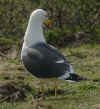 LBBG EA44 7cy, April 22 2002, Missouriweg - ECT, Maasvlakte, the Netherlands (51.59N,04.02E). An adult ringed, left orange EA44, the same date as EA11. LBBG EA44 7cy, April 22 2002, Missouriweg - ECT, Maasvlakte, the Netherlands (51.59N,04.02E). An adult ringed, left orange EA44, the same date as EA11. |
|||||||||||||||||||||||||||||||||||||||||||||||||||||||||||||||||||||||||||||||||||||||||||||||||||||||||||||||||||||||||||||||||||||||||||||||||||||||||||||||||||||||||||||||||||||||||||||||||||||||||||||||||||||||||||||||||||||||||||||||||||||||||||||||||||||||||||||||||||||||||||||||||||||||||||||||||||||||||||||||||||||||||||||||||||||||||||||||||||||||||||||||||||||||||||||||||||||||||||||||||||||||||||||||||||||||||||||||||||||||||||||
 LBBG EA90
9cy, April 13 2004, EMO, Maasvlakte, the Netherlands (51.59N 04.02E). LBBG EA90
9cy, April 13 2004, EMO, Maasvlakte, the Netherlands (51.59N 04.02E). |
|||||||||||||||||||||||||||||||||||||||||||||||||||||||||||||||||||||||||||||||||||||||||||||||||||||||||||||||||||||||||||||||||||||||||||||||||||||||||||||||||||||||||||||||||||||||||||||||||||||||||||||||||||||||||||||||||||||||||||||||||||||||||||||||||||||||||||||||||||||||||||||||||||||||||||||||||||||||||||||||||||||||||||||||||||||||||||||||||||||||||||||||||||||||||||||||||||||||||||||||||||||||||||||||||||||||||||||||||||||||||||||
|
|
|||||||||||||||||||||||||||||||||||||||||||||||||||||||||||||||||||||||||||||||||||||||||||||||||||||||||||||||||||||||||||||||||||||||||||||||||||||||||||||||||||||||||||||||||||||||||||||||||||||||||||||||||||||||||||||||||||||||||||||||||||||||||||||||||||||||||||||||||||||||||||||||||||||||||||||||||||||||||||||||||||||||||||||||||||||||||||||||||||||||||||||||||||||||||||||||||||||||||||||||||||||||||||||||||||||||||||||||||||||||||||||
 LBBG EH79, April 16 2001 & April 06 2003, Missouriweg Maasvlakte, the Netherlands (51.59N,04.02E). Ringed July 10 1995. LBBG EH79, April 16 2001 & April 06 2003, Missouriweg Maasvlakte, the Netherlands (51.59N,04.02E). Ringed July 10 1995. |
|||||||||||||||||||||||||||||||||||||||||||||||||||||||||||||||||||||||||||||||||||||||||||||||||||||||||||||||||||||||||||||||||||||||||||||||||||||||||||||||||||||||||||||||||||||||||||||||||||||||||||||||||||||||||||||||||||||||||||||||||||||||||||||||||||||||||||||||||||||||||||||||||||||||||||||||||||||||||||||||||||||||||||||||||||||||||||||||||||||||||||||||||||||||||||||||||||||||||||||||||||||||||||||||||||||||||||||||||||||||||||||
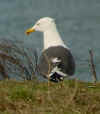 LBBG EK85,
April 06 2003, Missouriweg Maasvlakte, the Netherlands (51.59N,04.02E). Ringed July 10 1995. LBBG EK85,
April 06 2003, Missouriweg Maasvlakte, the Netherlands (51.59N,04.02E). Ringed July 10 1995. |
|||||||||||||||||||||||||||||||||||||||||||||||||||||||||||||||||||||||||||||||||||||||||||||||||||||||||||||||||||||||||||||||||||||||||||||||||||||||||||||||||||||||||||||||||||||||||||||||||||||||||||||||||||||||||||||||||||||||||||||||||||||||||||||||||||||||||||||||||||||||||||||||||||||||||||||||||||||||||||||||||||||||||||||||||||||||||||||||||||||||||||||||||||||||||||||||||||||||||||||||||||||||||||||||||||||||||||||||||||||||||||||
 LBBG EL10
7cy, April 19 2003, Nachtegalenkeet, Maasvlakte, the Netherlands (51.59N,04.02E). Ringed July 03 1997. LBBG EL10
7cy, April 19 2003, Nachtegalenkeet, Maasvlakte, the Netherlands (51.59N,04.02E). Ringed July 03 1997. |
|||||||||||||||||||||||||||||||||||||||||||||||||||||||||||||||||||||||||||||||||||||||||||||||||||||||||||||||||||||||||||||||||||||||||||||||||||||||||||||||||||||||||||||||||||||||||||||||||||||||||||||||||||||||||||||||||||||||||||||||||||||||||||||||||||||||||||||||||||||||||||||||||||||||||||||||||||||||||||||||||||||||||||||||||||||||||||||||||||||||||||||||||||||||||||||||||||||||||||||||||||||||||||||||||||||||||||||||||||||||||||||
 LBBG EL83
7cy, Missouriweg - Maasvlakte, the Netherlands (51.59N,04.02E), April 29 2002. LBBG EL83
7cy, Missouriweg - Maasvlakte, the Netherlands (51.59N,04.02E), April 29 2002. |
|||||||||||||||||||||||||||||||||||||||||||||||||||||||||||||||||||||||||||||||||||||||||||||||||||||||||||||||||||||||||||||||||||||||||||||||||||||||||||||||||||||||||||||||||||||||||||||||||||||||||||||||||||||||||||||||||||||||||||||||||||||||||||||||||||||||||||||||||||||||||||||||||||||||||||||||||||||||||||||||||||||||||||||||||||||||||||||||||||||||||||||||||||||||||||||||||||||||||||||||||||||||||||||||||||||||||||||||||||||||||||||
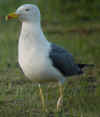 LBBG EM40
7cy, Missouriweg - Maasvlakte, the Netherlands (51.59N,04.02E), April 29 2002. An adult bird ringed left orange EM40, ringed as pullus at the nest, July 10 1996, now in 7cy. LBBG EM40
7cy, Missouriweg - Maasvlakte, the Netherlands (51.59N,04.02E), April 29 2002. An adult bird ringed left orange EM40, ringed as pullus at the nest, July 10 1996, now in 7cy. |
|||||||||||||||||||||||||||||||||||||||||||||||||||||||||||||||||||||||||||||||||||||||||||||||||||||||||||||||||||||||||||||||||||||||||||||||||||||||||||||||||||||||||||||||||||||||||||||||||||||||||||||||||||||||||||||||||||||||||||||||||||||||||||||||||||||||||||||||||||||||||||||||||||||||||||||||||||||||||||||||||||||||||||||||||||||||||||||||||||||||||||||||||||||||||||||||||||||||||||||||||||||||||||||||||||||||||||||||||||||||||||||
 LBBG EM79
6cy, April 16 2001, ECT centrale Maasvlakte (51.59N,04.02E), the Netherlands. Ringed July 10 1996. This is probably a female. LBBG EM79
6cy, April 16 2001, ECT centrale Maasvlakte (51.59N,04.02E), the Netherlands. Ringed July 10 1996. This is probably a female. |
|||||||||||||||||||||||||||||||||||||||||||||||||||||||||||||||||||||||||||||||||||||||||||||||||||||||||||||||||||||||||||||||||||||||||||||||||||||||||||||||||||||||||||||||||||||||||||||||||||||||||||||||||||||||||||||||||||||||||||||||||||||||||||||||||||||||||||||||||||||||||||||||||||||||||||||||||||||||||||||||||||||||||||||||||||||||||||||||||||||||||||||||||||||||||||||||||||||||||||||||||||||||||||||||||||||||||||||||||||||||||||||
 LBBG EN24 7cy, April 22 2002, Missouriweg - ECT, Maasvlakte, the Netherlands (51.59N,04.02E). LBBG EN24 7cy, April 22 2002, Missouriweg - ECT, Maasvlakte, the Netherlands (51.59N,04.02E). |
|||||||||||||||||||||||||||||||||||||||||||||||||||||||||||||||||||||||||||||||||||||||||||||||||||||||||||||||||||||||||||||||||||||||||||||||||||||||||||||||||||||||||||||||||||||||||||||||||||||||||||||||||||||||||||||||||||||||||||||||||||||||||||||||||||||||||||||||||||||||||||||||||||||||||||||||||||||||||||||||||||||||||||||||||||||||||||||||||||||||||||||||||||||||||||||||||||||||||||||||||||||||||||||||||||||||||||||||||||||||||||||
 LBBG EN84, March 18 2002 & April 05 2003, Missouriweg, Maasvlakte, the Netherlands (51.59N,04.02E). An adult ringed, left orange EN 84. Ringed July 13 1996. LBBG EN84, March 18 2002 & April 05 2003, Missouriweg, Maasvlakte, the Netherlands (51.59N,04.02E). An adult ringed, left orange EN 84. Ringed July 13 1996. |
|||||||||||||||||||||||||||||||||||||||||||||||||||||||||||||||||||||||||||||||||||||||||||||||||||||||||||||||||||||||||||||||||||||||||||||||||||||||||||||||||||||||||||||||||||||||||||||||||||||||||||||||||||||||||||||||||||||||||||||||||||||||||||||||||||||||||||||||||||||||||||||||||||||||||||||||||||||||||||||||||||||||||||||||||||||||||||||||||||||||||||||||||||||||||||||||||||||||||||||||||||||||||||||||||||||||||||||||||||||||||||||
 LBBG EP68 6cy, April 22 2002, Missouriweg - ECT, Maasvlakte, the Netherlands (51.59N,04.02E). LBBG EP68 6cy, April 22 2002, Missouriweg - ECT, Maasvlakte, the Netherlands (51.59N,04.02E). |
|||||||||||||||||||||||||||||||||||||||||||||||||||||||||||||||||||||||||||||||||||||||||||||||||||||||||||||||||||||||||||||||||||||||||||||||||||||||||||||||||||||||||||||||||||||||||||||||||||||||||||||||||||||||||||||||||||||||||||||||||||||||||||||||||||||||||||||||||||||||||||||||||||||||||||||||||||||||||||||||||||||||||||||||||||||||||||||||||||||||||||||||||||||||||||||||||||||||||||||||||||||||||||||||||||||||||||||||||||||||||||||
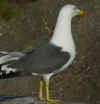 LBBG EP97
6cy, Missouriweg - Maasvlakte, the Netherlands (51.59N,04.02E), April 29 2002. An adult bird ringed left orange EP97, ringed as pullus at the nest, July 2 1997, now in 6cy. LBBG EP97
6cy, Missouriweg - Maasvlakte, the Netherlands (51.59N,04.02E), April 29 2002. An adult bird ringed left orange EP97, ringed as pullus at the nest, July 2 1997, now in 6cy. |
|||||||||||||||||||||||||||||||||||||||||||||||||||||||||||||||||||||||||||||||||||||||||||||||||||||||||||||||||||||||||||||||||||||||||||||||||||||||||||||||||||||||||||||||||||||||||||||||||||||||||||||||||||||||||||||||||||||||||||||||||||||||||||||||||||||||||||||||||||||||||||||||||||||||||||||||||||||||||||||||||||||||||||||||||||||||||||||||||||||||||||||||||||||||||||||||||||||||||||||||||||||||||||||||||||||||||||||||||||||||||||||
 LBBG ET48
9cy, April 26 2004, EMO - Maasvlakte, the Netherlands (51.59N 04.02E). Ringed 08 July 1996. LBBG ET48
9cy, April 26 2004, EMO - Maasvlakte, the Netherlands (51.59N 04.02E). Ringed 08 July 1996. |
|||||||||||||||||||||||||||||||||||||||||||||||||||||||||||||||||||||||||||||||||||||||||||||||||||||||||||||||||||||||||||||||||||||||||||||||||||||||||||||||||||||||||||||||||||||||||||||||||||||||||||||||||||||||||||||||||||||||||||||||||||||||||||||||||||||||||||||||||||||||||||||||||||||||||||||||||||||||||||||||||||||||||||||||||||||||||||||||||||||||||||||||||||||||||||||||||||||||||||||||||||||||||||||||||||||||||||||||||||||||||||||
 LBBG ET57 7cy, April 22 2002, Nachtegalenkeet, Maasvlakte, the Netherlands (51.59N,04.02E). LBBG ET57 7cy, April 22 2002, Nachtegalenkeet, Maasvlakte, the Netherlands (51.59N,04.02E). |
|||||||||||||||||||||||||||||||||||||||||||||||||||||||||||||||||||||||||||||||||||||||||||||||||||||||||||||||||||||||||||||||||||||||||||||||||||||||||||||||||||||||||||||||||||||||||||||||||||||||||||||||||||||||||||||||||||||||||||||||||||||||||||||||||||||||||||||||||||||||||||||||||||||||||||||||||||||||||||||||||||||||||||||||||||||||||||||||||||||||||||||||||||||||||||||||||||||||||||||||||||||||||||||||||||||||||||||||||||||||||||||
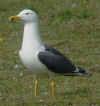 LBBG EU73 6cy, April 22 2002, Missouriweg - ECT, Maasvlakte, the Netherlands (51.59N,04.02E). An adult ringed, left orange EU73. This bird was ringed July 2 1997. LBBG EU73 6cy, April 22 2002, Missouriweg - ECT, Maasvlakte, the Netherlands (51.59N,04.02E). An adult ringed, left orange EU73. This bird was ringed July 2 1997. |
|||||||||||||||||||||||||||||||||||||||||||||||||||||||||||||||||||||||||||||||||||||||||||||||||||||||||||||||||||||||||||||||||||||||||||||||||||||||||||||||||||||||||||||||||||||||||||||||||||||||||||||||||||||||||||||||||||||||||||||||||||||||||||||||||||||||||||||||||||||||||||||||||||||||||||||||||||||||||||||||||||||||||||||||||||||||||||||||||||||||||||||||||||||||||||||||||||||||||||||||||||||||||||||||||||||||||||||||||||||||||||||
 LBBG EV24 6cy, April 22 2002, Missouriweg - ECT, Maasvlakte, the Netherlands (51.59N,04.02E). LBBG EV24 6cy, April 22 2002, Missouriweg - ECT, Maasvlakte, the Netherlands (51.59N,04.02E). |
|||||||||||||||||||||||||||||||||||||||||||||||||||||||||||||||||||||||||||||||||||||||||||||||||||||||||||||||||||||||||||||||||||||||||||||||||||||||||||||||||||||||||||||||||||||||||||||||||||||||||||||||||||||||||||||||||||||||||||||||||||||||||||||||||||||||||||||||||||||||||||||||||||||||||||||||||||||||||||||||||||||||||||||||||||||||||||||||||||||||||||||||||||||||||||||||||||||||||||||||||||||||||||||||||||||||||||||||||||||||||||||
 LBBG EV83 6cy, April 22 2002, Nachtegalenkeet, Maasvlakte, the Netherlands (51.59N,04.02E). LBBG EV83 6cy, April 22 2002, Nachtegalenkeet, Maasvlakte, the Netherlands (51.59N,04.02E). |
|||||||||||||||||||||||||||||||||||||||||||||||||||||||||||||||||||||||||||||||||||||||||||||||||||||||||||||||||||||||||||||||||||||||||||||||||||||||||||||||||||||||||||||||||||||||||||||||||||||||||||||||||||||||||||||||||||||||||||||||||||||||||||||||||||||||||||||||||||||||||||||||||||||||||||||||||||||||||||||||||||||||||||||||||||||||||||||||||||||||||||||||||||||||||||||||||||||||||||||||||||||||||||||||||||||||||||||||||||||||||||||
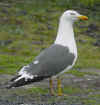 LBBG EX14 8cy, April 13 2004, EMO, Maasvlakte, the Netherlands (51.59N 04.02E). Ringed 03 July 1997. LBBG EX14 8cy, April 13 2004, EMO, Maasvlakte, the Netherlands (51.59N 04.02E). Ringed 03 July 1997. |
|||||||||||||||||||||||||||||||||||||||||||||||||||||||||||||||||||||||||||||||||||||||||||||||||||||||||||||||||||||||||||||||||||||||||||||||||||||||||||||||||||||||||||||||||||||||||||||||||||||||||||||||||||||||||||||||||||||||||||||||||||||||||||||||||||||||||||||||||||||||||||||||||||||||||||||||||||||||||||||||||||||||||||||||||||||||||||||||||||||||||||||||||||||||||||||||||||||||||||||||||||||||||||||||||||||||||||||||||||||||||||||
 LBBG EY68 7cy, April 06 2003, Nachtegalenkeet, Maasvlakte, the Netherlands (51.59N,04.02E). LBBG EY68 7cy, April 06 2003, Nachtegalenkeet, Maasvlakte, the Netherlands (51.59N,04.02E). |
|||||||||||||||||||||||||||||||||||||||||||||||||||||||||||||||||||||||||||||||||||||||||||||||||||||||||||||||||||||||||||||||||||||||||||||||||||||||||||||||||||||||||||||||||||||||||||||||||||||||||||||||||||||||||||||||||||||||||||||||||||||||||||||||||||||||||||||||||||||||||||||||||||||||||||||||||||||||||||||||||||||||||||||||||||||||||||||||||||||||||||||||||||||||||||||||||||||||||||||||||||||||||||||||||||||||||||||||||||||||||||||
 LBBG EAL1 8cy, April 26 2004, EMO Maasvlakte, the Netherlands (51.59N 04.02E). Ringed 04 July 1997. LBBG EAL1 8cy, April 26 2004, EMO Maasvlakte, the Netherlands (51.59N 04.02E). Ringed 04 July 1997. |
|||||||||||||||||||||||||||||||||||||||||||||||||||||||||||||||||||||||||||||||||||||||||||||||||||||||||||||||||||||||||||||||||||||||||||||||||||||||||||||||||||||||||||||||||||||||||||||||||||||||||||||||||||||||||||||||||||||||||||||||||||||||||||||||||||||||||||||||||||||||||||||||||||||||||||||||||||||||||||||||||||||||||||||||||||||||||||||||||||||||||||||||||||||||||||||||||||||||||||||||||||||||||||||||||||||||||||||||||||||||||||||
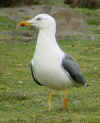 LBBG EAY0 15cy, March 18 & April 22 2002, Missouriweg, Maasvlakte, the Netherlands (51.59N,04.02E). The first of birds An adult ringed, left orange EAY0, originating from Britain, ringed in 1988. LBBG EAY0 15cy, March 18 & April 22 2002, Missouriweg, Maasvlakte, the Netherlands (51.59N,04.02E). The first of birds An adult ringed, left orange EAY0, originating from Britain, ringed in 1988. |
|||||||||||||||||||||||||||||||||||||||||||||||||||||||||||||||||||||||||||||||||||||||||||||||||||||||||||||||||||||||||||||||||||||||||||||||||||||||||||||||||||||||||||||||||||||||||||||||||||||||||||||||||||||||||||||||||||||||||||||||||||||||||||||||||||||||||||||||||||||||||||||||||||||||||||||||||||||||||||||||||||||||||||||||||||||||||||||||||||||||||||||||||||||||||||||||||||||||||||||||||||||||||||||||||||||||||||||||||||||||||||||
|
|
|||||||||||||||||||||||||||||||||||||||||||||||||||||||||||||||||||||||||||||||||||||||||||||||||||||||||||||||||||||||||||||||||||||||||||||||||||||||||||||||||||||||||||||||||||||||||||||||||||||||||||||||||||||||||||||||||||||||||||||||||||||||||||||||||||||||||||||||||||||||||||||||||||||||||||||||||||||||||||||||||||||||||||||||||||||||||||||||||||||||||||||||||||||||||||||||||||||||||||||||||||||||||||||||||||||||||||||||||||||||||||||
 LBBG ECL4 8cy, April 13 2004, EMO - Maasvlakte, the Netherlands (51.59N 04.02E). Ringed as pullus, July 03 1997. LBBG ECL4 8cy, April 13 2004, EMO - Maasvlakte, the Netherlands (51.59N 04.02E). Ringed as pullus, July 03 1997. |
|||||||||||||||||||||||||||||||||||||||||||||||||||||||||||||||||||||||||||||||||||||||||||||||||||||||||||||||||||||||||||||||||||||||||||||||||||||||||||||||||||||||||||||||||||||||||||||||||||||||||||||||||||||||||||||||||||||||||||||||||||||||||||||||||||||||||||||||||||||||||||||||||||||||||||||||||||||||||||||||||||||||||||||||||||||||||||||||||||||||||||||||||||||||||||||||||||||||||||||||||||||||||||||||||||||||||||||||||||||||||||||
|
|
|||||||||||||||||||||||||||||||||||||||||||||||||||||||||||||||||||||||||||||||||||||||||||||||||||||||||||||||||||||||||||||||||||||||||||||||||||||||||||||||||||||||||||||||||||||||||||||||||||||||||||||||||||||||||||||||||||||||||||||||||||||||||||||||||||||||||||||||||||||||||||||||||||||||||||||||||||||||||||||||||||||||||||||||||||||||||||||||||||||||||||||||||||||||||||||||||||||||||||||||||||||||||||||||||||||||||||||||||||||||||||||
 LBBG NP8 8cy, April 29 2004, Missouriweg, Maasvlakte, the Netherlands (51.59N 04.02E). Ringed 11 July 1997. LBBG NP8 8cy, April 29 2004, Missouriweg, Maasvlakte, the Netherlands (51.59N 04.02E). Ringed 11 July 1997. |
|||||||||||||||||||||||||||||||||||||||||||||||||||||||||||||||||||||||||||||||||||||||||||||||||||||||||||||||||||||||||||||||||||||||||||||||||||||||||||||||||||||||||||||||||||||||||||||||||||||||||||||||||||||||||||||||||||||||||||||||||||||||||||||||||||||||||||||||||||||||||||||||||||||||||||||||||||||||||||||||||||||||||||||||||||||||||||||||||||||||||||||||||||||||||||||||||||||||||||||||||||||||||||||||||||||||||||||||||||||||||||||
 LBBG NT0 6cy, March 18 2002, Missouriweg, Maasvlakte, the Netherlands (51.59N,04.02E). An adult female ringed, left orange NT0 in white letters. LBBG NT0 6cy, March 18 2002, Missouriweg, Maasvlakte, the Netherlands (51.59N,04.02E). An adult female ringed, left orange NT0 in white letters. |
|||||||||||||||||||||||||||||||||||||||||||||||||||||||||||||||||||||||||||||||||||||||||||||||||||||||||||||||||||||||||||||||||||||||||||||||||||||||||||||||||||||||||||||||||||||||||||||||||||||||||||||||||||||||||||||||||||||||||||||||||||||||||||||||||||||||||||||||||||||||||||||||||||||||||||||||||||||||||||||||||||||||||||||||||||||||||||||||||||||||||||||||||||||||||||||||||||||||||||||||||||||||||||||||||||||||||||||||||||||||||||||
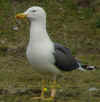 LBBG NU6 6cy, April 22 2002, Missouriweg - ECT, Maasvlakte, the Netherlands (51.59N,04.02E). An adult ringed, left orange with a white code NU6. Ringed the same date as NT0. LBBG NU6 6cy, April 22 2002, Missouriweg - ECT, Maasvlakte, the Netherlands (51.59N,04.02E). An adult ringed, left orange with a white code NU6. Ringed the same date as NT0. |
|||||||||||||||||||||||||||||||||||||||||||||||||||||||||||||||||||||||||||||||||||||||||||||||||||||||||||||||||||||||||||||||||||||||||||||||||||||||||||||||||||||||||||||||||||||||||||||||||||||||||||||||||||||||||||||||||||||||||||||||||||||||||||||||||||||||||||||||||||||||||||||||||||||||||||||||||||||||||||||||||||||||||||||||||||||||||||||||||||||||||||||||||||||||||||||||||||||||||||||||||||||||||||||||||||||||||||||||||||||||||||||
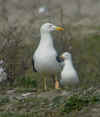 LBBG NX5 6cy, April 22 2002, Missouriweg - ECT, Maasvlakte, the Netherlands (51.59N,04.02E). An adult ringed, left orange with a white code NX5. Ringed as pullus, July 12 1997. LBBG NX5 6cy, April 22 2002, Missouriweg - ECT, Maasvlakte, the Netherlands (51.59N,04.02E). An adult ringed, left orange with a white code NX5. Ringed as pullus, July 12 1997. |
|||||||||||||||||||||||||||||||||||||||||||||||||||||||||||||||||||||||||||||||||||||||||||||||||||||||||||||||||||||||||||||||||||||||||||||||||||||||||||||||||||||||||||||||||||||||||||||||||||||||||||||||||||||||||||||||||||||||||||||||||||||||||||||||||||||||||||||||||||||||||||||||||||||||||||||||||||||||||||||||||||||||||||||||||||||||||||||||||||||||||||||||||||||||||||||||||||||||||||||||||||||||||||||||||||||||||||||||||||||||||||||
 LBBG PA4 6cy, Missouriweg - Maasvlakte, the Netherlands (51.59N,04.02E), April 29 2002. An adult bird ringed left orange with white code PA4, ringed as pullus at the nest, July 12 1997, now in 6cy. LBBG PA4 6cy, Missouriweg - Maasvlakte, the Netherlands (51.59N,04.02E), April 29 2002. An adult bird ringed left orange with white code PA4, ringed as pullus at the nest, July 12 1997, now in 6cy. |
|||||||||||||||||||||||||||||||||||||||||||||||||||||||||||||||||||||||||||||||||||||||||||||||||||||||||||||||||||||||||||||||||||||||||||||||||||||||||||||||||||||||||||||||||||||||||||||||||||||||||||||||||||||||||||||||||||||||||||||||||||||||||||||||||||||||||||||||||||||||||||||||||||||||||||||||||||||||||||||||||||||||||||||||||||||||||||||||||||||||||||||||||||||||||||||||||||||||||||||||||||||||||||||||||||||||||||||||||||||||||||||
 LBBG PA8 8cy, Missouriweg - Maasvlakte, the Netherlands (51.59N,04.02E), April 13 2004. Ringed as pullus, July 12 1997. LBBG PA8 8cy, Missouriweg - Maasvlakte, the Netherlands (51.59N,04.02E), April 13 2004. Ringed as pullus, July 12 1997. |
|||||||||||||||||||||||||||||||||||||||||||||||||||||||||||||||||||||||||||||||||||||||||||||||||||||||||||||||||||||||||||||||||||||||||||||||||||||||||||||||||||||||||||||||||||||||||||||||||||||||||||||||||||||||||||||||||||||||||||||||||||||||||||||||||||||||||||||||||||||||||||||||||||||||||||||||||||||||||||||||||||||||||||||||||||||||||||||||||||||||||||||||||||||||||||||||||||||||||||||||||||||||||||||||||||||||||||||||||||||||||||||
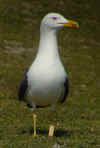 LBBG RC9 6cy, April 22 2002, Missouriweg - ECT, Maasvlakte, the Netherlands (51.59N,04.02E). An adult ringed, left orange with a white code RC9. Ringed July 11 1997. LBBG RC9 6cy, April 22 2002, Missouriweg - ECT, Maasvlakte, the Netherlands (51.59N,04.02E). An adult ringed, left orange with a white code RC9. Ringed July 11 1997. |
|||||||||||||||||||||||||||||||||||||||||||||||||||||||||||||||||||||||||||||||||||||||||||||||||||||||||||||||||||||||||||||||||||||||||||||||||||||||||||||||||||||||||||||||||||||||||||||||||||||||||||||||||||||||||||||||||||||||||||||||||||||||||||||||||||||||||||||||||||||||||||||||||||||||||||||||||||||||||||||||||||||||||||||||||||||||||||||||||||||||||||||||||||||||||||||||||||||||||||||||||||||||||||||||||||||||||||||||||||||||||||||
 LBBG RJ5 7cy, April 19 2003, Nachtegalenkeet - Maasvlakte, the Netherlands (51.59N,04.02E). An adult ringed, left orange with a white code RJ5. Ringed July 11 1997. LBBG RJ5 7cy, April 19 2003, Nachtegalenkeet - Maasvlakte, the Netherlands (51.59N,04.02E). An adult ringed, left orange with a white code RJ5. Ringed July 11 1997. |
|||||||||||||||||||||||||||||||||||||||||||||||||||||||||||||||||||||||||||||||||||||||||||||||||||||||||||||||||||||||||||||||||||||||||||||||||||||||||||||||||||||||||||||||||||||||||||||||||||||||||||||||||||||||||||||||||||||||||||||||||||||||||||||||||||||||||||||||||||||||||||||||||||||||||||||||||||||||||||||||||||||||||||||||||||||||||||||||||||||||||||||||||||||||||||||||||||||||||||||||||||||||||||||||||||||||||||||||||||||||||||||
|
|
|||||||||||||||||||||||||||||||||||||||||||||||||||||||||||||||||||||||||||||||||||||||||||||||||||||||||||||||||||||||||||||||||||||||||||||||||||||||||||||||||||||||||||||||||||||||||||||||||||||||||||||||||||||||||||||||||||||||||||||||||||||||||||||||||||||||||||||||||||||||||||||||||||||||||||||||||||||||||||||||||||||||||||||||||||||||||||||||||||||||||||||||||||||||||||||||||||||||||||||||||||||||||||||||||||||||||||||||||||||||||||||
 LBBG EH6 11cy, April 19 2003, Nachtegalenkeet, Maasvlakte, the Netherlands (51.59N,04.02E). An adult ringed, left green EH6. LBBG EH6 11cy, April 19 2003, Nachtegalenkeet, Maasvlakte, the Netherlands (51.59N,04.02E). An adult ringed, left green EH6. |
|||||||||||||||||||||||||||||||||||||||||||||||||||||||||||||||||||||||||||||||||||||||||||||||||||||||||||||||||||||||||||||||||||||||||||||||||||||||||||||||||||||||||||||||||||||||||||||||||||||||||||||||||||||||||||||||||||||||||||||||||||||||||||||||||||||||||||||||||||||||||||||||||||||||||||||||||||||||||||||||||||||||||||||||||||||||||||||||||||||||||||||||||||||||||||||||||||||||||||||||||||||||||||||||||||||||||||||||||||||||||||||
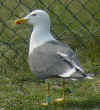 LBBG JH5 10cy, April 22 & 29 2002, Dintelhaven, Maasvlakte, the Netherlands (51.59N,04.02E). An adult ringed, left green JH5. This bird was ringed June 28 1993. LBBG JH5 10cy, April 22 & 29 2002, Dintelhaven, Maasvlakte, the Netherlands (51.59N,04.02E). An adult ringed, left green JH5. This bird was ringed June 28 1993. |
|||||||||||||||||||||||||||||||||||||||||||||||||||||||||||||||||||||||||||||||||||||||||||||||||||||||||||||||||||||||||||||||||||||||||||||||||||||||||||||||||||||||||||||||||||||||||||||||||||||||||||||||||||||||||||||||||||||||||||||||||||||||||||||||||||||||||||||||||||||||||||||||||||||||||||||||||||||||||||||||||||||||||||||||||||||||||||||||||||||||||||||||||||||||||||||||||||||||||||||||||||||||||||||||||||||||||||||||||||||||||||||
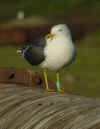 LBBG JL7 10cy, Missouriweg - Maasvlakte, the Netherlands (51.59N,04.02E), April 29 2002. An adult bird ringed left green JL7, ringed as pullus at the nest, June 21 1993, now in 10cy. Note the mirror on p10, merging with the white tip. LBBG JL7 10cy, Missouriweg - Maasvlakte, the Netherlands (51.59N,04.02E), April 29 2002. An adult bird ringed left green JL7, ringed as pullus at the nest, June 21 1993, now in 10cy. Note the mirror on p10, merging with the white tip. |
|||||||||||||||||||||||||||||||||||||||||||||||||||||||||||||||||||||||||||||||||||||||||||||||||||||||||||||||||||||||||||||||||||||||||||||||||||||||||||||||||||||||||||||||||||||||||||||||||||||||||||||||||||||||||||||||||||||||||||||||||||||||||||||||||||||||||||||||||||||||||||||||||||||||||||||||||||||||||||||||||||||||||||||||||||||||||||||||||||||||||||||||||||||||||||||||||||||||||||||||||||||||||||||||||||||||||||||||||||||||||||||
 LBBG LL1, 2001 & 2002, ECT centrale Maasvlakte, the Netherlands (51.59N,04.02E). Ringed June 28th 1993. Probably a male. LBBG LL1, 2001 & 2002, ECT centrale Maasvlakte, the Netherlands (51.59N,04.02E). Ringed June 28th 1993. Probably a male. |
|||||||||||||||||||||||||||||||||||||||||||||||||||||||||||||||||||||||||||||||||||||||||||||||||||||||||||||||||||||||||||||||||||||||||||||||||||||||||||||||||||||||||||||||||||||||||||||||||||||||||||||||||||||||||||||||||||||||||||||||||||||||||||||||||||||||||||||||||||||||||||||||||||||||||||||||||||||||||||||||||||||||||||||||||||||||||||||||||||||||||||||||||||||||||||||||||||||||||||||||||||||||||||||||||||||||||||||||||||||||||||||
 LBBG NV4, 2002 & 2004, Dintelhaven, Maasvlakte, the Netherlands (51.59N 04.02E). LBBG NV4, 2002 & 2004, Dintelhaven, Maasvlakte, the Netherlands (51.59N 04.02E). |
|||||||||||||||||||||||||||||||||||||||||||||||||||||||||||||||||||||||||||||||||||||||||||||||||||||||||||||||||||||||||||||||||||||||||||||||||||||||||||||||||||||||||||||||||||||||||||||||||||||||||||||||||||||||||||||||||||||||||||||||||||||||||||||||||||||||||||||||||||||||||||||||||||||||||||||||||||||||||||||||||||||||||||||||||||||||||||||||||||||||||||||||||||||||||||||||||||||||||||||||||||||||||||||||||||||||||||||||||||||||||||||
 LBBG NV7, April 13 2004, Dintelhaven, Maasvlakte, the Netherlands (51.59N,04.02E). LBBG NV7, April 13 2004, Dintelhaven, Maasvlakte, the Netherlands (51.59N,04.02E). |
|||||||||||||||||||||||||||||||||||||||||||||||||||||||||||||||||||||||||||||||||||||||||||||||||||||||||||||||||||||||||||||||||||||||||||||||||||||||||||||||||||||||||||||||||||||||||||||||||||||||||||||||||||||||||||||||||||||||||||||||||||||||||||||||||||||||||||||||||||||||||||||||||||||||||||||||||||||||||||||||||||||||||||||||||||||||||||||||||||||||||||||||||||||||||||||||||||||||||||||||||||||||||||||||||||||||||||||||||||||||||||||
 LBBG PP4, April 22 2002, Dintelhaven, Maasvlakte, the Netherlands (51.59N,04.02E). An adult ringed, left green PP4. LBBG PP4, April 22 2002, Dintelhaven, Maasvlakte, the Netherlands (51.59N,04.02E). An adult ringed, left green PP4. |
|||||||||||||||||||||||||||||||||||||||||||||||||||||||||||||||||||||||||||||||||||||||||||||||||||||||||||||||||||||||||||||||||||||||||||||||||||||||||||||||||||||||||||||||||||||||||||||||||||||||||||||||||||||||||||||||||||||||||||||||||||||||||||||||||||||||||||||||||||||||||||||||||||||||||||||||||||||||||||||||||||||||||||||||||||||||||||||||||||||||||||||||||||||||||||||||||||||||||||||||||||||||||||||||||||||||||||||||||||||||||||||
 LBBG TS1, April 22 & 29 2002, Dintelhaven, Maasvlakte, the Netherlands (51.59N,04.02E). An adult ringed, left green TS1. LBBG TS1, April 22 & 29 2002, Dintelhaven, Maasvlakte, the Netherlands (51.59N,04.02E). An adult ringed, left green TS1. |
|||||||||||||||||||||||||||||||||||||||||||||||||||||||||||||||||||||||||||||||||||||||||||||||||||||||||||||||||||||||||||||||||||||||||||||||||||||||||||||||||||||||||||||||||||||||||||||||||||||||||||||||||||||||||||||||||||||||||||||||||||||||||||||||||||||||||||||||||||||||||||||||||||||||||||||||||||||||||||||||||||||||||||||||||||||||||||||||||||||||||||||||||||||||||||||||||||||||||||||||||||||||||||||||||||||||||||||||||||||||||||||
|
|
|||||||||||||||||||||||||||||||||||||||||||||||||||||||||||||||||||||||||||||||||||||||||||||||||||||||||||||||||||||||||||||||||||||||||||||||||||||||||||||||||||||||||||||||||||||||||||||||||||||||||||||||||||||||||||||||||||||||||||||||||||||||||||||||||||||||||||||||||||||||||||||||||||||||||||||||||||||||||||||||||||||||||||||||||||||||||||||||||||||||||||||||||||||||||||||||||||||||||||||||||||||||||||||||||||||||||||||||||||||||||||||
 LBBG E398 8cy, March 30 2002, Dintelhaven, Maasvlakte, the Netherlands (51.59N,04.02E). This bird was ringed June 28 1995 close to the current breeding spot. LBBG E398 8cy, March 30 2002, Dintelhaven, Maasvlakte, the Netherlands (51.59N,04.02E). This bird was ringed June 28 1995 close to the current breeding spot. |
|||||||||||||||||||||||||||||||||||||||||||||||||||||||||||||||||||||||||||||||||||||||||||||||||||||||||||||||||||||||||||||||||||||||||||||||||||||||||||||||||||||||||||||||||||||||||||||||||||||||||||||||||||||||||||||||||||||||||||||||||||||||||||||||||||||||||||||||||||||||||||||||||||||||||||||||||||||||||||||||||||||||||||||||||||||||||||||||||||||||||||||||||||||||||||||||||||||||||||||||||||||||||||||||||||||||||||||||||||||||||||||
 LBBG E451 8cy, April 13 2004, EMO - Maasvlakte, the Netherlands (51.59N 04.02E). Ringed June 15 1995. LBBG E451 8cy, April 13 2004, EMO - Maasvlakte, the Netherlands (51.59N 04.02E). Ringed June 15 1995. |
|||||||||||||||||||||||||||||||||||||||||||||||||||||||||||||||||||||||||||||||||||||||||||||||||||||||||||||||||||||||||||||||||||||||||||||||||||||||||||||||||||||||||||||||||||||||||||||||||||||||||||||||||||||||||||||||||||||||||||||||||||||||||||||||||||||||||||||||||||||||||||||||||||||||||||||||||||||||||||||||||||||||||||||||||||||||||||||||||||||||||||||||||||||||||||||||||||||||||||||||||||||||||||||||||||||||||||||||||||||||||||||
 LBBG E887 9cy , April 05 2003, Missouriweg - Maasvlakte, the Netherlands (51.59N,04.02E). LBBG E887 9cy , April 05 2003, Missouriweg - Maasvlakte, the Netherlands (51.59N,04.02E). |
|||||||||||||||||||||||||||||||||||||||||||||||||||||||||||||||||||||||||||||||||||||||||||||||||||||||||||||||||||||||||||||||||||||||||||||||||||||||||||||||||||||||||||||||||||||||||||||||||||||||||||||||||||||||||||||||||||||||||||||||||||||||||||||||||||||||||||||||||||||||||||||||||||||||||||||||||||||||||||||||||||||||||||||||||||||||||||||||||||||||||||||||||||||||||||||||||||||||||||||||||||||||||||||||||||||||||||||||||||||||||||||
 LBBG EE02 11cy , April 29 2004, Missouriweg - Maasvlakte, the Netherlands (51.59N 04.02E). Ringed 07 July 1994 at Maasvlakte. LBBG EE02 11cy , April 29 2004, Missouriweg - Maasvlakte, the Netherlands (51.59N 04.02E). Ringed 07 July 1994 at Maasvlakte. |
|||||||||||||||||||||||||||||||||||||||||||||||||||||||||||||||||||||||||||||||||||||||||||||||||||||||||||||||||||||||||||||||||||||||||||||||||||||||||||||||||||||||||||||||||||||||||||||||||||||||||||||||||||||||||||||||||||||||||||||||||||||||||||||||||||||||||||||||||||||||||||||||||||||||||||||||||||||||||||||||||||||||||||||||||||||||||||||||||||||||||||||||||||||||||||||||||||||||||||||||||||||||||||||||||||||||||||||||||||||||||||||
 LBBG ES98 7cy, Dintelhaven - Maasvlakte, the Netherlands (51.59N,04.02E), April 29 2002. LBBG ES98 7cy, Dintelhaven - Maasvlakte, the Netherlands (51.59N,04.02E), April 29 2002. |
|||||||||||||||||||||||||||||||||||||||||||||||||||||||||||||||||||||||||||||||||||||||||||||||||||||||||||||||||||||||||||||||||||||||||||||||||||||||||||||||||||||||||||||||||||||||||||||||||||||||||||||||||||||||||||||||||||||||||||||||||||||||||||||||||||||||||||||||||||||||||||||||||||||||||||||||||||||||||||||||||||||||||||||||||||||||||||||||||||||||||||||||||||||||||||||||||||||||||||||||||||||||||||||||||||||||||||||||||||||||||||||
 LBBG ET17 7cy, April 22 2002, Dintelhaven, Maasvlakte, the Netherlands (51.59N,04.02E). Ringed June 26 1996. LBBG ET17 7cy, April 22 2002, Dintelhaven, Maasvlakte, the Netherlands (51.59N,04.02E). Ringed June 26 1996. |
|||||||||||||||||||||||||||||||||||||||||||||||||||||||||||||||||||||||||||||||||||||||||||||||||||||||||||||||||||||||||||||||||||||||||||||||||||||||||||||||||||||||||||||||||||||||||||||||||||||||||||||||||||||||||||||||||||||||||||||||||||||||||||||||||||||||||||||||||||||||||||||||||||||||||||||||||||||||||||||||||||||||||||||||||||||||||||||||||||||||||||||||||||||||||||||||||||||||||||||||||||||||||||||||||||||||||||||||||||||||||||||
 LBBG ET79 7cy, Dintelhaven - Maasvlakte, the Netherlands (51.59N,04.02E), April 29 2002. Ringed as pullus June 26 1996. LBBG ET79 7cy, Dintelhaven - Maasvlakte, the Netherlands (51.59N,04.02E), April 29 2002. Ringed as pullus June 26 1996. |
|||||||||||||||||||||||||||||||||||||||||||||||||||||||||||||||||||||||||||||||||||||||||||||||||||||||||||||||||||||||||||||||||||||||||||||||||||||||||||||||||||||||||||||||||||||||||||||||||||||||||||||||||||||||||||||||||||||||||||||||||||||||||||||||||||||||||||||||||||||||||||||||||||||||||||||||||||||||||||||||||||||||||||||||||||||||||||||||||||||||||||||||||||||||||||||||||||||||||||||||||||||||||||||||||||||||||||||||||||||||||||||
 LBBG EV39 6cy, Dintelhaven - Maasvlakte, the Netherlands (51.59N,04.02E), April 29 2002. Ringed as pullus June 21 1997, now 6cy. LBBG EV39 6cy, Dintelhaven - Maasvlakte, the Netherlands (51.59N,04.02E), April 29 2002. Ringed as pullus June 21 1997, now 6cy. |
|||||||||||||||||||||||||||||||||||||||||||||||||||||||||||||||||||||||||||||||||||||||||||||||||||||||||||||||||||||||||||||||||||||||||||||||||||||||||||||||||||||||||||||||||||||||||||||||||||||||||||||||||||||||||||||||||||||||||||||||||||||||||||||||||||||||||||||||||||||||||||||||||||||||||||||||||||||||||||||||||||||||||||||||||||||||||||||||||||||||||||||||||||||||||||||||||||||||||||||||||||||||||||||||||||||||||||||||||||||||||||||
|
|
|||||||||||||||||||||||||||||||||||||||||||||||||||||||||||||||||||||||||||||||||||||||||||||||||||||||||||||||||||||||||||||||||||||||||||||||||||||||||||||||||||||||||||||||||||||||||||||||||||||||||||||||||||||||||||||||||||||||||||||||||||||||||||||||||||||||||||||||||||||||||||||||||||||||||||||||||||||||||||||||||||||||||||||||||||||||||||||||||||||||||||||||||||||||||||||||||||||||||||||||||||||||||||||||||||||||||||||||||||||||||||||
|
|
|||||||||||||||||||||||||||||||||||||||||||||||||||||||||||||||||||||||||||||||||||||||||||||||||||||||||||||||||||||||||||||||||||||||||||||||||||||||||||||||||||||||||||||||||||||||||||||||||||||||||||||||||||||||||||||||||||||||||||||||||||||||||||||||||||||||||||||||||||||||||||||||||||||||||||||||||||||||||||||||||||||||||||||||||||||||||||||||||||||||||||||||||||||||||||||||||||||||||||||||||||||||||||||||||||||||||||||||||||||||||||||
 LBBG EAK5 6cy, Dintelhaven - Maasvlakte, the Netherlands (51.59N,04.02E), April 29 2002. Ringed as pullus at the nest, June 24 1997, now 6cy. LBBG EAK5 6cy, Dintelhaven - Maasvlakte, the Netherlands (51.59N,04.02E), April 29 2002. Ringed as pullus at the nest, June 24 1997, now 6cy. |
|||||||||||||||||||||||||||||||||||||||||||||||||||||||||||||||||||||||||||||||||||||||||||||||||||||||||||||||||||||||||||||||||||||||||||||||||||||||||||||||||||||||||||||||||||||||||||||||||||||||||||||||||||||||||||||||||||||||||||||||||||||||||||||||||||||||||||||||||||||||||||||||||||||||||||||||||||||||||||||||||||||||||||||||||||||||||||||||||||||||||||||||||||||||||||||||||||||||||||||||||||||||||||||||||||||||||||||||||||||||||||||
 LBBG EAS1 6cy, April 22 2002, Dintelhaven, Maasvlakte, the Netherlands (51.59N,04.02E). Ringed June 24 1997. LBBG EAS1 6cy, April 22 2002, Dintelhaven, Maasvlakte, the Netherlands (51.59N,04.02E). Ringed June 24 1997. |
|||||||||||||||||||||||||||||||||||||||||||||||||||||||||||||||||||||||||||||||||||||||||||||||||||||||||||||||||||||||||||||||||||||||||||||||||||||||||||||||||||||||||||||||||||||||||||||||||||||||||||||||||||||||||||||||||||||||||||||||||||||||||||||||||||||||||||||||||||||||||||||||||||||||||||||||||||||||||||||||||||||||||||||||||||||||||||||||||||||||||||||||||||||||||||||||||||||||||||||||||||||||||||||||||||||||||||||||||||||||||||||
|
|
|||||||||||||||||||||||||||||||||||||||||||||||||||||||||||||||||||||||||||||||||||||||||||||||||||||||||||||||||||||||||||||||||||||||||||||||||||||||||||||||||||||||||||||||||||||||||||||||||||||||||||||||||||||||||||||||||||||||||||||||||||||||||||||||||||||||||||||||||||||||||||||||||||||||||||||||||||||||||||||||||||||||||||||||||||||||||||||||||||||||||||||||||||||||||||||||||||||||||||||||||||||||||||||||||||||||||||||||||||||||||||||
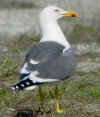 LBBG M69 13cy, Lyondell - Maasvlakte, the Netherlands (51.59N,04.02E), 05 April 2003. Left white M69, ringed as pullus at the nest, July 06 1991, now in 13cy. LBBG M69 13cy, Lyondell - Maasvlakte, the Netherlands (51.59N,04.02E), 05 April 2003. Left white M69, ringed as pullus at the nest, July 06 1991, now in 13cy. |
|||||||||||||||||||||||||||||||||||||||||||||||||||||||||||||||||||||||||||||||||||||||||||||||||||||||||||||||||||||||||||||||||||||||||||||||||||||||||||||||||||||||||||||||||||||||||||||||||||||||||||||||||||||||||||||||||||||||||||||||||||||||||||||||||||||||||||||||||||||||||||||||||||||||||||||||||||||||||||||||||||||||||||||||||||||||||||||||||||||||||||||||||||||||||||||||||||||||||||||||||||||||||||||||||||||||||||||||||||||||||||||
 LBBG M90 12cy, Missouriweg - Maasvlakte, the Netherlands, April 29 2002. Ringed as pullus at the nest, July 06 1991. These codes were used from the first years the ring project started in 1990 and 1991. LBBG M90 12cy, Missouriweg - Maasvlakte, the Netherlands, April 29 2002. Ringed as pullus at the nest, July 06 1991. These codes were used from the first years the ring project started in 1990 and 1991. |
|||||||||||||||||||||||||||||||||||||||||||||||||||||||||||||||||||||||||||||||||||||||||||||||||||||||||||||||||||||||||||||||||||||||||||||||||||||||||||||||||||||||||||||||||||||||||||||||||||||||||||||||||||||||||||||||||||||||||||||||||||||||||||||||||||||||||||||||||||||||||||||||||||||||||||||||||||||||||||||||||||||||||||||||||||||||||||||||||||||||||||||||||||||||||||||||||||||||||||||||||||||||||||||||||||||||||||||||||||||||||||||
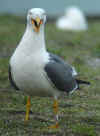 LBBG R18, Missouriweg - Maasvlakte, the Netherlands (51.59N,04.02E), April 29 2002 & April 06 2003. Ringed white R18 and a vertical T, ringed as pullus at the nest, July 06 1991. A strong bird, indicating this is a male. Note the odd shape of the p10-mirror. LBBG R18, Missouriweg - Maasvlakte, the Netherlands (51.59N,04.02E), April 29 2002 & April 06 2003. Ringed white R18 and a vertical T, ringed as pullus at the nest, July 06 1991. A strong bird, indicating this is a male. Note the odd shape of the p10-mirror. |
|||||||||||||||||||||||||||||||||||||||||||||||||||||||||||||||||||||||||||||||||||||||||||||||||||||||||||||||||||||||||||||||||||||||||||||||||||||||||||||||||||||||||||||||||||||||||||||||||||||||||||||||||||||||||||||||||||||||||||||||||||||||||||||||||||||||||||||||||||||||||||||||||||||||||||||||||||||||||||||||||||||||||||||||||||||||||||||||||||||||||||||||||||||||||||||||||||||||||||||||||||||||||||||||||||||||||||||||||||||||||||||
 LBBG RY9 5cy, Missouriweg - Maasvlakte, the Netherlands (51.59N,04.02E), April 29 2002. Ringed as pullus early July 1998. LBBG RY9 5cy, Missouriweg - Maasvlakte, the Netherlands (51.59N,04.02E), April 29 2002. Ringed as pullus early July 1998. |
|||||||||||||||||||||||||||||||||||||||||||||||||||||||||||||||||||||||||||||||||||||||||||||||||||||||||||||||||||||||||||||||||||||||||||||||||||||||||||||||||||||||||||||||||||||||||||||||||||||||||||||||||||||||||||||||||||||||||||||||||||||||||||||||||||||||||||||||||||||||||||||||||||||||||||||||||||||||||||||||||||||||||||||||||||||||||||||||||||||||||||||||||||||||||||||||||||||||||||||||||||||||||||||||||||||||||||||||||||||||||||||
 LBBG SH2 5cy, April 22 2002, Dintelhaven, Maasvlakte, the Netherlands (51.59N,04.02E). An adult ringed, left white SH2. LBBG SH2 5cy, April 22 2002, Dintelhaven, Maasvlakte, the Netherlands (51.59N,04.02E). An adult ringed, left white SH2. |
|||||||||||||||||||||||||||||||||||||||||||||||||||||||||||||||||||||||||||||||||||||||||||||||||||||||||||||||||||||||||||||||||||||||||||||||||||||||||||||||||||||||||||||||||||||||||||||||||||||||||||||||||||||||||||||||||||||||||||||||||||||||||||||||||||||||||||||||||||||||||||||||||||||||||||||||||||||||||||||||||||||||||||||||||||||||||||||||||||||||||||||||||||||||||||||||||||||||||||||||||||||||||||||||||||||||||||||||||||||||||||||
 LBBG SP3, April 22 2002, Missouriweg - ECT, Maasvlakte, the Netherlands (51.59N,04.02E). An adult ringed, left white SP3. LBBG SP3, April 22 2002, Missouriweg - ECT, Maasvlakte, the Netherlands (51.59N,04.02E). An adult ringed, left white SP3. |
|||||||||||||||||||||||||||||||||||||||||||||||||||||||||||||||||||||||||||||||||||||||||||||||||||||||||||||||||||||||||||||||||||||||||||||||||||||||||||||||||||||||||||||||||||||||||||||||||||||||||||||||||||||||||||||||||||||||||||||||||||||||||||||||||||||||||||||||||||||||||||||||||||||||||||||||||||||||||||||||||||||||||||||||||||||||||||||||||||||||||||||||||||||||||||||||||||||||||||||||||||||||||||||||||||||||||||||||||||||||||||||
 LBBG V11 9cy, Maasvlakte, the Netherlands (51.59N,04.02E), April 14 1999. Photo by Pim Wolf. This bird was ringed on July 08 1991. LBBG V11 9cy, Maasvlakte, the Netherlands (51.59N,04.02E), April 14 1999. Photo by Pim Wolf. This bird was ringed on July 08 1991. |
|||||||||||||||||||||||||||||||||||||||||||||||||||||||||||||||||||||||||||||||||||||||||||||||||||||||||||||||||||||||||||||||||||||||||||||||||||||||||||||||||||||||||||||||||||||||||||||||||||||||||||||||||||||||||||||||||||||||||||||||||||||||||||||||||||||||||||||||||||||||||||||||||||||||||||||||||||||||||||||||||||||||||||||||||||||||||||||||||||||||||||||||||||||||||||||||||||||||||||||||||||||||||||||||||||||||||||||||||||||||||||||
 LBBG V90 14cy, Maasvlakte, the Netherlands (51.59N,04.02E), April 29 2004. This bird was ringed on July 08 1991. LBBG V90 14cy, Maasvlakte, the Netherlands (51.59N,04.02E), April 29 2004. This bird was ringed on July 08 1991. |
|||||||||||||||||||||||||||||||||||||||||||||||||||||||||||||||||||||||||||||||||||||||||||||||||||||||||||||||||||||||||||||||||||||||||||||||||||||||||||||||||||||||||||||||||||||||||||||||||||||||||||||||||||||||||||||||||||||||||||||||||||||||||||||||||||||||||||||||||||||||||||||||||||||||||||||||||||||||||||||||||||||||||||||||||||||||||||||||||||||||||||||||||||||||||||||||||||||||||||||||||||||||||||||||||||||||||||||||||||||||||||||
 LBBGxYLG hybrid? L4 adult, April 13 2004, EMO, Maasvlakte, the Netherlands (51.59N,04.02E). LBBGxYLG hybrid? L4 adult, April 13 2004, EMO, Maasvlakte, the Netherlands (51.59N,04.02E). |
|||||||||||||||||||||||||||||||||||||||||||||||||||||||||||||||||||||||||||||||||||||||||||||||||||||||||||||||||||||||||||||||||||||||||||||||||||||||||||||||||||||||||||||||||||||||||||||||||||||||||||||||||||||||||||||||||||||||||||||||||||||||||||||||||||||||||||||||||||||||||||||||||||||||||||||||||||||||||||||||||||||||||||||||||||||||||||||||||||||||||||||||||||||||||||||||||||||||||||||||||||||||||||||||||||||||||||||||||||||||||||||
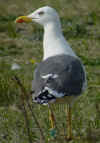 LBBG 2-- adult, April 29 2002, Dintelhaven, Maasvlakte, the Netherlands (51.59N,04.02E). LBBG 2-- adult, April 29 2002, Dintelhaven, Maasvlakte, the Netherlands (51.59N,04.02E). |
|||||||||||||||||||||||||||||||||||||||||||||||||||||||||||||||||||||||||||||||||||||||||||||||||||||||||||||||||||||||||||||||||||||||||||||||||||||||||||||||||||||||||||||||||||||||||||||||||||||||||||||||||||||||||||||||||||||||||||||||||||||||||||||||||||||||||||||||||||||||||||||||||||||||||||||||||||||||||||||||||||||||||||||||||||||||||||||||||||||||||||||||||||||||||||||||||||||||||||||||||||||||||||||||||||||||||||||||||||||||||||||
 LBBG 7S adult, April 29 2004, Dintelhaven, Maasvlakte, the Netherlands (51.59N 04.02E). Parent in the 1cy LBBG post-juvenile moult project 2004. LBBG 7S adult, April 29 2004, Dintelhaven, Maasvlakte, the Netherlands (51.59N 04.02E). Parent in the 1cy LBBG post-juvenile moult project 2004. |
|||||||||||||||||||||||||||||||||||||||||||||||||||||||||||||||||||||||||||||||||||||||||||||||||||||||||||||||||||||||||||||||||||||||||||||||||||||||||||||||||||||||||||||||||||||||||||||||||||||||||||||||||||||||||||||||||||||||||||||||||||||||||||||||||||||||||||||||||||||||||||||||||||||||||||||||||||||||||||||||||||||||||||||||||||||||||||||||||||||||||||||||||||||||||||||||||||||||||||||||||||||||||||||||||||||||||||||||||||||||||||||
 LBBG J7 adult, April 12 2001, Nachtegalenkeet Maasvlakte, the Netherlands (51.59N,04.02E). Probably an adult female, ringed J green 7 black. LBBG J7 adult, April 12 2001, Nachtegalenkeet Maasvlakte, the Netherlands (51.59N,04.02E). Probably an adult female, ringed J green 7 black. |
|||||||||||||||||||||||||||||||||||||||||||||||||||||||||||||||||||||||||||||||||||||||||||||||||||||||||||||||||||||||||||||||||||||||||||||||||||||||||||||||||||||||||||||||||||||||||||||||||||||||||||||||||||||||||||||||||||||||||||||||||||||||||||||||||||||||||||||||||||||||||||||||||||||||||||||||||||||||||||||||||||||||||||||||||||||||||||||||||||||||||||||||||||||||||||||||||||||||||||||||||||||||||||||||||||||||||||||||||||||||||||||
 LBBG --1 adult, April 13 2004, Dintelhaven, Maasvlakte, the Netherlands (51.59N,04.02E). LBBG --1 adult, April 13 2004, Dintelhaven, Maasvlakte, the Netherlands (51.59N,04.02E). |
|||||||||||||||||||||||||||||||||||||||||||||||||||||||||||||||||||||||||||||||||||||||||||||||||||||||||||||||||||||||||||||||||||||||||||||||||||||||||||||||||||||||||||||||||||||||||||||||||||||||||||||||||||||||||||||||||||||||||||||||||||||||||||||||||||||||||||||||||||||||||||||||||||||||||||||||||||||||||||||||||||||||||||||||||||||||||||||||||||||||||||||||||||||||||||||||||||||||||||||||||||||||||||||||||||||||||||||||||||||||||||||
 LBBG E022 6cy, April 29 2004, Missouriweg - ECT, Maasvlakte, the Netherlands (51.59N 04.02E). Ringed July 17 1999 at Maasvlakte. LBBG E022 6cy, April 29 2004, Missouriweg - ECT, Maasvlakte, the Netherlands (51.59N 04.02E). Ringed July 17 1999 at Maasvlakte. |
|||||||||||||||||||||||||||||||||||||||||||||||||||||||||||||||||||||||||||||||||||||||||||||||||||||||||||||||||||||||||||||||||||||||||||||||||||||||||||||||||||||||||||||||||||||||||||||||||||||||||||||||||||||||||||||||||||||||||||||||||||||||||||||||||||||||||||||||||||||||||||||||||||||||||||||||||||||||||||||||||||||||||||||||||||||||||||||||||||||||||||||||||||||||||||||||||||||||||||||||||||||||||||||||||||||||||||||||||||||||||||||
 LBBG E136 6cy, April 13 2004, EMO, Maasvlakte, the Netherlands (51.59N 04.02E). Ringed as pullus, July 17 1999. LBBG E136 6cy, April 13 2004, EMO, Maasvlakte, the Netherlands (51.59N 04.02E). Ringed as pullus, July 17 1999. |
|||||||||||||||||||||||||||||||||||||||||||||||||||||||||||||||||||||||||||||||||||||||||||||||||||||||||||||||||||||||||||||||||||||||||||||||||||||||||||||||||||||||||||||||||||||||||||||||||||||||||||||||||||||||||||||||||||||||||||||||||||||||||||||||||||||||||||||||||||||||||||||||||||||||||||||||||||||||||||||||||||||||||||||||||||||||||||||||||||||||||||||||||||||||||||||||||||||||||||||||||||||||||||||||||||||||||||||||||||||||||||||
 LBBG E302 5cy, April 26 2004, Missouriweg, Maasvlakte, the Netherlands (51.59N 04.02E). Ringed as pullus, July 04 2000. LBBG E302 5cy, April 26 2004, Missouriweg, Maasvlakte, the Netherlands (51.59N 04.02E). Ringed as pullus, July 04 2000. |
|||||||||||||||||||||||||||||||||||||||||||||||||||||||||||||||||||||||||||||||||||||||||||||||||||||||||||||||||||||||||||||||||||||||||||||||||||||||||||||||||||||||||||||||||||||||||||||||||||||||||||||||||||||||||||||||||||||||||||||||||||||||||||||||||||||||||||||||||||||||||||||||||||||||||||||||||||||||||||||||||||||||||||||||||||||||||||||||||||||||||||||||||||||||||||||||||||||||||||||||||||||||||||||||||||||||||||||||||||||||||||||
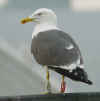 LBBG E347 5cy, April 29 2004, Nachtegalenkeet, Maasvlakte, the Netherlands (51.59N 04.02E). Ringed July 08 2000 at Maasvlakte. LBBG E347 5cy, April 29 2004, Nachtegalenkeet, Maasvlakte, the Netherlands (51.59N 04.02E). Ringed July 08 2000 at Maasvlakte. |
|||||||||||||||||||||||||||||||||||||||||||||||||||||||||||||||||||||||||||||||||||||||||||||||||||||||||||||||||||||||||||||||||||||||||||||||||||||||||||||||||||||||||||||||||||||||||||||||||||||||||||||||||||||||||||||||||||||||||||||||||||||||||||||||||||||||||||||||||||||||||||||||||||||||||||||||||||||||||||||||||||||||||||||||||||||||||||||||||||||||||||||||||||||||||||||||||||||||||||||||||||||||||||||||||||||||||||||||||||||||||||||
 LBBG ALH adult, April 19 2003, e-on, Maasvlakte, the Netherlands (51.59N 04.02E). Ringed in the U.K. LBBG ALH adult, April 19 2003, e-on, Maasvlakte, the Netherlands (51.59N 04.02E). Ringed in the U.K. |
|||||||||||||||||||||||||||||||||||||||||||||||||||||||||||||||||||||||||||||||||||||||||||||||||||||||||||||||||||||||||||||||||||||||||||||||||||||||||||||||||||||||||||||||||||||||||||||||||||||||||||||||||||||||||||||||||||||||||||||||||||||||||||||||||||||||||||||||||||||||||||||||||||||||||||||||||||||||||||||||||||||||||||||||||||||||||||||||||||||||||||||||||||||||||||||||||||||||||||||||||||||||||||||||||||||||||||||||||||||||||||||
 LBBG NLA 5.248.763 adult, April 13 2004, EMO, Maasvlakte, the Netherlands (51.59N 04.02E). LBBG NLA 5.248.763 adult, April 13 2004, EMO, Maasvlakte, the Netherlands (51.59N 04.02E). |
|||||||||||||||||||||||||||||||||||||||||||||||||||||||||||||||||||||||||||||||||||||||||||||||||||||||||||||||||||||||||||||||||||||||||||||||||||||||||||||||||||||||||||||||||||||||||||||||||||||||||||||||||||||||||||||||||||||||||||||||||||||||||||||||||||||||||||||||||||||||||||||||||||||||||||||||||||||||||||||||||||||||||||||||||||||||||||||||||||||||||||||||||||||||||||||||||||||||||||||||||||||||||||||||||||||||||||||||||||||||||||||
 LBBG NLA 5.248.808 adult, April 05 2003, Nachtegalenkeet, Maasvlakte, the Netherlands (51.59N,04.02E). LBBG NLA 5.248.808 adult, April 05 2003, Nachtegalenkeet, Maasvlakte, the Netherlands (51.59N,04.02E). |
|||||||||||||||||||||||||||||||||||||||||||||||||||||||||||||||||||||||||||||||||||||||||||||||||||||||||||||||||||||||||||||||||||||||||||||||||||||||||||||||||||||||||||||||||||||||||||||||||||||||||||||||||||||||||||||||||||||||||||||||||||||||||||||||||||||||||||||||||||||||||||||||||||||||||||||||||||||||||||||||||||||||||||||||||||||||||||||||||||||||||||||||||||||||||||||||||||||||||||||||||||||||||||||||||||||||||||||||||||||||||||||
 LBBG BLB L-4483? adult, April 16 2001, Missouriweg Maasvlakte, the Netherlands (51.59N,04.02E). LBBG BLB L-4483? adult, April 16 2001, Missouriweg Maasvlakte, the Netherlands (51.59N,04.02E). |
|||||||||||||||||||||||||||||||||||||||||||||||||||||||||||||||||||||||||||||||||||||||||||||||||||||||||||||||||||||||||||||||||||||||||||||||||||||||||||||||||||||||||||||||||||||||||||||||||||||||||||||||||||||||||||||||||||||||||||||||||||||||||||||||||||||||||||||||||||||||||||||||||||||||||||||||||||||||||||||||||||||||||||||||||||||||||||||||||||||||||||||||||||||||||||||||||||||||||||||||||||||||||||||||||||||||||||||||||||||||||||||
 LBBG BLB L-76225 7cy, April 05 2003, Nachtegalenkeet - Maasvlakte, the Netherlands (51.59N,04.02E). LBBG BLB L-76225 7cy, April 05 2003, Nachtegalenkeet - Maasvlakte, the Netherlands (51.59N,04.02E). |
|||||||||||||||||||||||||||||||||||||||||||||||||||||||||||||||||||||||||||||||||||||||||||||||||||||||||||||||||||||||||||||||||||||||||||||||||||||||||||||||||||||||||||||||||||||||||||||||||||||||||||||||||||||||||||||||||||||||||||||||||||||||||||||||||||||||||||||||||||||||||||||||||||||||||||||||||||||||||||||||||||||||||||||||||||||||||||||||||||||||||||||||||||||||||||||||||||||||||||||||||||||||||||||||||||||||||||||||||||||||||||||
 LBBG BLB L-90374 adult, April 26 2004, EMO - Maasvlakte, the Netherlands (51.59N 04.02E). LBBG BLB L-90374 adult, April 26 2004, EMO - Maasvlakte, the Netherlands (51.59N 04.02E). |
|||||||||||||||||||||||||||||||||||||||||||||||||||||||||||||||||||||||||||||||||||||||||||||||||||||||||||||||||||||||||||||||||||||||||||||||||||||||||||||||||||||||||||||||||||||||||||||||||||||||||||||||||||||||||||||||||||||||||||||||||||||||||||||||||||||||||||||||||||||||||||||||||||||||||||||||||||||||||||||||||||||||||||||||||||||||||||||||||||||||||||||||||||||||||||||||||||||||||||||||||||||||||||||||||||||||||||||||||||||||||||||
 LBBG BLB L-92674 adult, April 13 2004, EMO - Maasvlakte, the Netherlands (51.59N 04.02E). LBBG BLB L-92674 adult, April 13 2004, EMO - Maasvlakte, the Netherlands (51.59N 04.02E). |
|||||||||||||||||||||||||||||||||||||||||||||||||||||||||||||||||||||||||||||||||||||||||||||||||||||||||||||||||||||||||||||||||||||||||||||||||||||||||||||||||||||||||||||||||||||||||||||||||||||||||||||||||||||||||||||||||||||||||||||||||||||||||||||||||||||||||||||||||||||||||||||||||||||||||||||||||||||||||||||||||||||||||||||||||||||||||||||||||||||||||||||||||||||||||||||||||||||||||||||||||||||||||||||||||||||||||||||||||||||||||||||
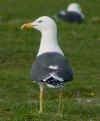 LBBG graellsii BTO FP-53605, April 05 2003, Nachtegalenkeet, Maasvlakte, the Netherlands (51.59N,04.02E). An adult ringed in Britain, now breeding in SW Holland. LBBG graellsii BTO FP-53605, April 05 2003, Nachtegalenkeet, Maasvlakte, the Netherlands (51.59N,04.02E). An adult ringed in Britain, now breeding in SW Holland. |
|||||||||||||||||||||||||||||||||||||||||||||||||||||||||||||||||||||||||||||||||||||||||||||||||||||||||||||||||||||||||||||||||||||||||||||||||||||||||||||||||||||||||||||||||||||||||||||||||||||||||||||||||||||||||||||||||||||||||||||||||||||||||||||||||||||||||||||||||||||||||||||||||||||||||||||||||||||||||||||||||||||||||||||||||||||||||||||||||||||||||||||||||||||||||||||||||||||||||||||||||||||||||||||||||||||||||||||||||||||||||||||
 LBBG graellsii BTO FP-53854, April 26 2004, EMO - Maasvlakte, the Netherlands (51.59N 04.02E). An adult ringed in Britain, now breeding in SW Holland. LBBG graellsii BTO FP-53854, April 26 2004, EMO - Maasvlakte, the Netherlands (51.59N 04.02E). An adult ringed in Britain, now breeding in SW Holland. |
|||||||||||||||||||||||||||||||||||||||||||||||||||||||||||||||||||||||||||||||||||||||||||||||||||||||||||||||||||||||||||||||||||||||||||||||||||||||||||||||||||||||||||||||||||||||||||||||||||||||||||||||||||||||||||||||||||||||||||||||||||||||||||||||||||||||||||||||||||||||||||||||||||||||||||||||||||||||||||||||||||||||||||||||||||||||||||||||||||||||||||||||||||||||||||||||||||||||||||||||||||||||||||||||||||||||||||||||||||||||||||||
 LBBG graellsii BTO GG-93433, April 22 2002, Missouriweg - ECT, Maasvlakte, the Netherlands (51.59N,04.02E). An adult ringed in Britain, now breeding in SW Holland. LBBG graellsii BTO GG-93433, April 22 2002, Missouriweg - ECT, Maasvlakte, the Netherlands (51.59N,04.02E). An adult ringed in Britain, now breeding in SW Holland. |
|||||||||||||||||||||||||||||||||||||||||||||||||||||||||||||||||||||||||||||||||||||||||||||||||||||||||||||||||||||||||||||||||||||||||||||||||||||||||||||||||||||||||||||||||||||||||||||||||||||||||||||||||||||||||||||||||||||||||||||||||||||||||||||||||||||||||||||||||||||||||||||||||||||||||||||||||||||||||||||||||||||||||||||||||||||||||||||||||||||||||||||||||||||||||||||||||||||||||||||||||||||||||||||||||||||||||||||||||||||||||||||
|
|
|||||||||||||||||||||||||||||||||||||||||||||||||||||||||||||||||||||||||||||||||||||||||||||||||||||||||||||||||||||||||||||||||||||||||||||||||||||||||||||||||||||||||||||||||||||||||||||||||||||||||||||||||||||||||||||||||||||||||||||||||||||||||||||||||||||||||||||||||||||||||||||||||||||||||||||||||||||||||||||||||||||||||||||||||||||||||||||||||||||||||||||||||||||||||||||||||||||||||||||||||||||||||||||||||||||||||||||||||||||||||||||
 LBBG graellsii BTO ?E-4678?, April 19 2002, Le Portel / Boulogne-sur-Mer, France (50.42N,01.34E). An adult bird with a British ring. LBBG graellsii BTO ?E-4678?, April 19 2002, Le Portel / Boulogne-sur-Mer, France (50.42N,01.34E). An adult bird with a British ring. |
|||||||||||||||||||||||||||||||||||||||||||||||||||||||||||||||||||||||||||||||||||||||||||||||||||||||||||||||||||||||||||||||||||||||||||||||||||||||||||||||||||||||||||||||||||||||||||||||||||||||||||||||||||||||||||||||||||||||||||||||||||||||||||||||||||||||||||||||||||||||||||||||||||||||||||||||||||||||||||||||||||||||||||||||||||||||||||||||||||||||||||||||||||||||||||||||||||||||||||||||||||||||||||||||||||||||||||||||||||||||||||||












